
Temple Solel members see Black history up close in Alabama
HEADLINES | 8
RAPTOR RESCUER
Teen Allie Koss created a safe space for rescued burrowing owls



Temple Solel members see Black history up close in Alabama
HEADLINES | 8
Teen Allie Koss created a safe space for rescued burrowing owls

SHANNON LEVITT | STAFF WRITER
On a cool and breezy mid-May evening, the American Jewish singer Matisyahu performed his blend of reggae, rap, rock and beatbox music in front of a large and enthusiastic crowd at Watson Lake outside of Prescott. He was one of a few headliners for the city’s annual Pure Imagination Music Festival on Saturday, May 17.
More than a year ago, the singer made headlines when a few of his concerts were canceled, including one at Tucson’s Rialto Theatre, after he was targeted by pro-Palestinian protesters for his vocal pro-Israel advocacy.
In the weeks leading up to the Tucson concert, Matisyahu posted a video of himself on Instagram draped in an Israeli flag while performing “One Day” (his peace anthem) for Israeli soldiers. He explained why he wore the Israel Defense Forces’ (IDF) Golani infantry unit’s flag onstage. “It is a reminder for me every time I perform for our family of warriors fighting for the soul of our nation,” he wrote in the caption.
Protesters called out his support for the IDF and the Rialto cited security concerns when they canceled the show, even though Matisyahu offered to pay for additional staff and security.
The Tucson cancellation was one of the motivations behind inviting him to Prescott.
“It’s been a tough few years for the Jewish community, and he’s had shows canceled for reasons that bother me,” Candace Devine, the festival’s creator and owner, told Jewish News.
“I was eager to have him, a respected and talented artist, on our stage.”
SEE PRESCOTT, PAGE 2
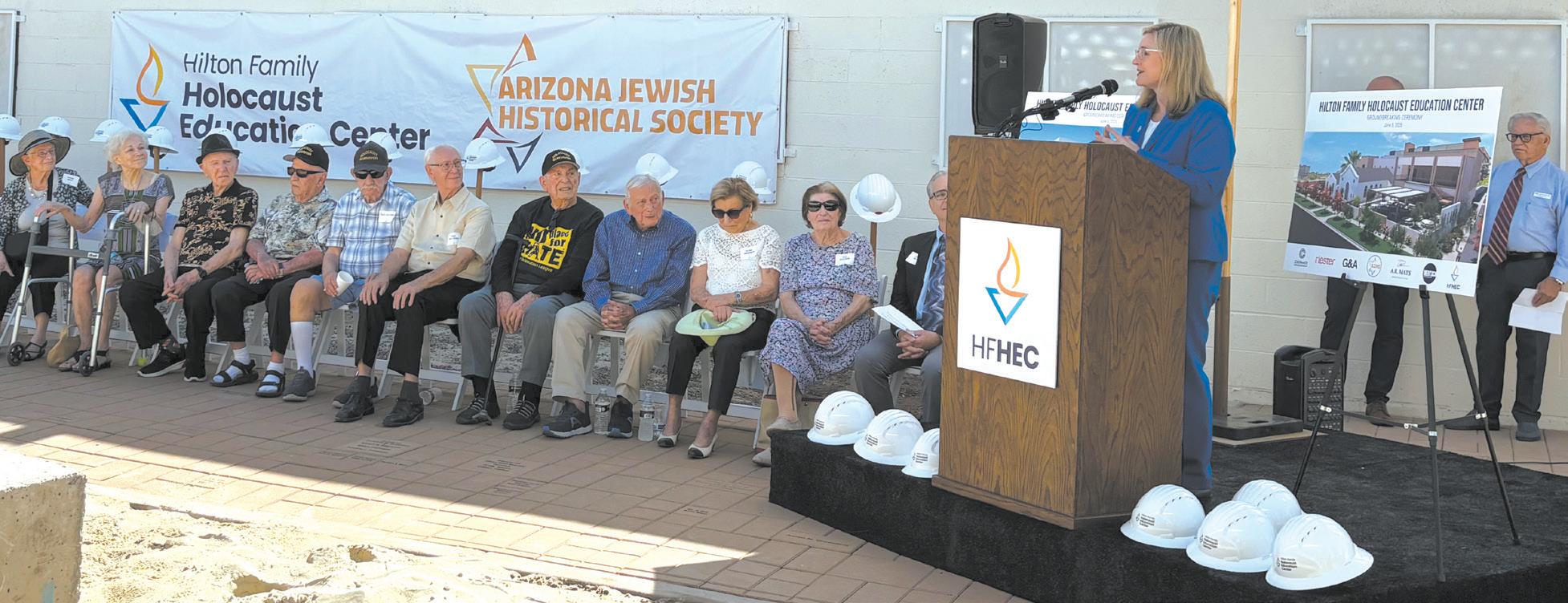
With a dozen determined swings of a sledgehammer, Steve Hilton broke through the north wall of the Arizona Jewish Historical Society’s (AZJHS) downtown building, officially breaking ground on the Hilton Family Holocaust Education Center, Phoenix’s first permanent Holocaust museum.
Ten Holocaust survivors in hard hats and with shovels in hand quickly followed his lead as they dug out a ceremonial scoop of dirt on the lot alongside the building, where the center will open its doors less than two years from now. Their efforts were rewarded by a huge cheer from a crowd of roughly 250 onlookers, all witnesses to a moment that has been in the making for more than a decade.
In his opening remarks, Chuck Gealer, AZJHS’ immediate past board chair, recalled when the first “seed was planted” and people began pondering whether they could “create something lasting, something bold, to honor survivors and educate future generations in Arizona.”

SEE CENTER, PAGE 3
A simple blood test can now help predict who is at higher risk for developing Alzheimer’s disease, years before symptoms begin. See page 14.
COURTESY OF HONORHEALTH
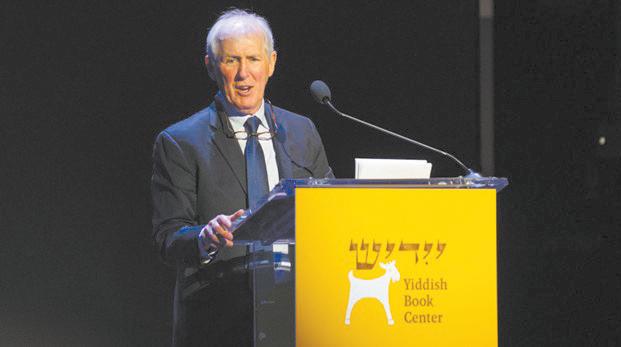
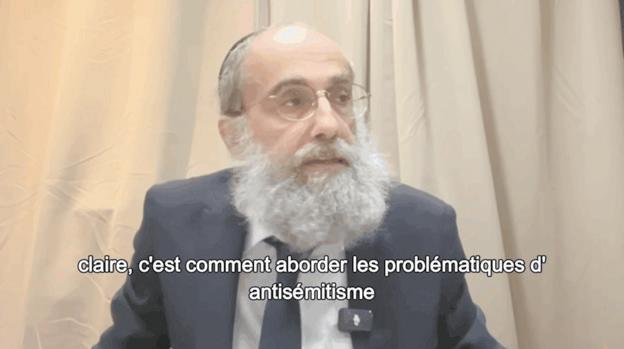
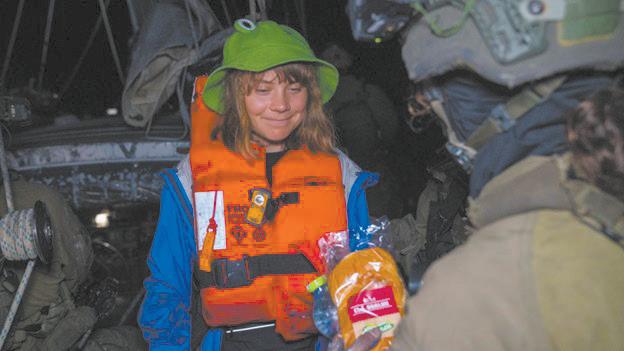
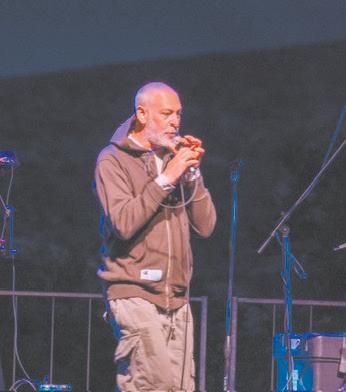
January 6
January 20
January 6
February 3
would have liked because since he’s also a cardiac surgeon, he was on hand to provide medical support.
SOPHIE STERN
said Jon Meyers, director of ADDPC.
CONTINUED FROM PAGE 1
Devine did receive some pushback on her decision to invite Matisyahu, which she expected. Luckily, it wasn’t overwhelming and when anyone got too stringent or negative, she took the “sorry, not sorry” approach by deleting and blocking them.
said Jon Meyers, director of ADDPC.
“Our hope is to create and promote opportunities for people to be embraced, become part of the community and find equitable opportunities wherever they might live,” he said.
“Our hope is to create and promote opportunities for people to be embraced, become part of the community and find equitable opportunities wherever they might live,” he said.
“Everyone is allowed their opinion, and I have patience for dialogue but not for that,” she said.
Devine was there when Matisyahu played at The Van Buren in Phoenix last December. She wanted to see in person how he was received nine months after the Tucson incident. She said she had to walk through a group of protesters and noted the venue’s added security.
Meyers first came to know Stern through her mother, Amy Silverman, who read her personal essays about raising a daughter with Down syndrome on KJZZ, National Public Radio’s Phoenix affiliate station.
addition to several food trucks, vendors sold everything from jewelry and clothing to books and cake pops. Visitors could also get a tattoo, a psychic reading or have their faces painted. Many people were dressed in long, flowing, 60s-inspired clothes and children laughed and ran over the open field surrounded by granite rock formations. Everywhere, people were blowing bubbles and dancing.
Meyers first came to know Stern through her mother, Amy Silverman, who read her personal essays about raising a daughter with Down syndrome on KJZZ, National Public Radio’s Phoenix affiliate station.
Meyers was so captivated by the essays that he reached out to Silverman, and the two became friends.
Meyers was so captivated by the essays that he reached out to Silverman, and the two became friends.
That’s how Stern first learned of the open council seat, but there’s no doubt she earned her position, Meyers said.
about her Judaism with her fellow council members and speaking out for her rights and beliefs.
about her Judaism with her fellow council members and speaking out for her rights and beliefs.
She already has some practice at advocating for herself.
She already has some practice at advocating for herself.
Ellen Price and Val Sawyer traveled to the festival all the way from Elgin in Santa Cruz County. They were on a mission to see bands who are celebrating 50 years in the music business, so they came to watch Cheap Trick, the final band of the evening. Neither of them had heard Matisyahu’s music before, but they were interested in learning more.
“One time, I was in class and someone called me the R-word and I told him not to. The teacher was in the hallway and another student repeated the word,” she said. Rather than letting the situation go, she told her theater teacher, who was able to intervene.
“One time, I was in class and someone called me the R-word and I told him not to. The teacher was in the hallway and another student repeated the word,” she said. Rather than letting the situation go, she told her theater teacher, who was able to intervene.
“If someone has a disability, saying the R-word is like saying the F-word,” Stern said.
“If someone has a disability, saying the R-word is like saying the F-word,” Stern said.
While performing in the musical “Hairspray,” she had another occasion to tangle with the offensive word, which appears in the script.
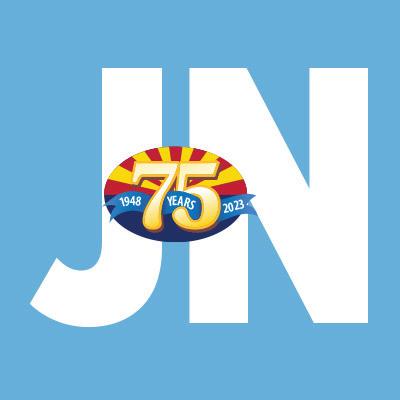
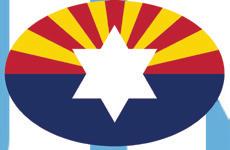
Devine is Jewish and wished to “lift a voice from the Jewish community,” she said. Every year, she strives to have diverse musicians play at the festival, and Matisyahu is another example of that goal.
January 20
February 17
August 25
September 1
Still, she was excited to watch his show and felt justified in her decision to invite him. She also said he was more than happy to accept.
That’s how Stern first learned of the open council seat, but there’s no doubt she earned her position, Meyers said.
To become a council member, Stern had to apply and demonstrate that she had something valuable to contribute, he said.
While performing in the musical “Hairspray,” she had another occasion to tangle with the offensive word, which appears in the script.
After learning about the protests around his prior concerts, they were both glad that no protesters showed up. Sawyer has Jewish relatives and was looking forward to telling them she had seen his show.
“That’s really bad and my friend said it on stage. I was not OK with that, so I went to the director and told her it was a bad word for people with disabilities, but she wouldn’t take it out,” Stern said.
August 25 September 1
September 8
September 15
“His music speaks to how he feels and is an important voice to be heard,” she said.
March 10
February 3
September 8
October 6
February 17
March 24
March 10
March 31
March 24
April 7
March 31
April 21
April 7
May 5
April 21
May 19
September 15
October 6
She said she sees a lot of support for the Jewish community in Prescott, and said Prescott’s Jewish Community Foundation (JCF) bought $25,000 worth of tickets to pass out to educators and students.
October 13** October 20 November 3
JCF board member Dr. Pierre Tibi felt that donating the tickets was a great way to thank the city’s teachers “for all they do for our children. The festival is family-friendly and a great thing for kids,” he told Jewish News.
October 13** October 20
November 10
November 3
November 17
November 10
December 1
The festival added security and created a structure to discourage protesters. No signs were allowed, only clear bags were permitted and people parked offsite and took a shuttle to Watson Lake. She was also willing to tell people to leave if it came down to it.
To become a council member, Stern had to apply and demonstrate that she had something valuable to contribute, he said.
“She’s on the council because she deserves to be on the council,” he said.
“I just want to enjoy the music,” Price told Jewish News.
“That’s really bad and my friend said it on stage. I was not OK with that, so I went to the director and told her it was a bad word for people with disabilities, but she wouldn’t take it out,” Stern said.
“She’s on the council because she deserves to be on the council,” he said.
Stern is creating a life and career as a member of her community, which makes her a great addition.
Stern is creating a life and career as a member of her community, which makes her a great addition.
“I believe in tolerance, but people who come to make a scene are not promoting tolerance. Nobody crossed any boundaries on Saturday,” she said.
Matisyahu’s audience was one of the most enthusiastic of the day, she added.
Stern graduated from McClintock High School in Tempe last year and now attends Glendale Community College, with a focus on dance. She is a regular performer at Detour Company Theatre, a Scottsdale theatre company for adults with intellectual, developmental and physical disabilities.
While waiting for him to play, both women lounged on a blanket on the grass enjoying the family-friendly nature of the festival, but wishing they had known to bring lawn chairs.
She let her mother know about the conflict and they were able to convince the director of the need to remove the word from the script.
She let her mother know about the conflict and they were able to convince the director of the need to remove the word from the script.
“My friend Al was next to me when I told the director and he gave me the biggest hug ever and said that he loved me so much,” Stern said. Sadly, Al died in a car crash on Oct. 24, 2021.
Heart Can’t Even Believe It: A Story of Science, Love and Down Syndrome,” Silverman’s book about her daughter. When Gesher’s speakers’ bureau, Damon Brooks & Associates, was asked to find a speaker about Down syndrome for an event this spring, Hummell first asked Silverman to speak, thinking Stern might be too young.
“This kind of festival is a nice and mellow way to listen to music. Basically, it’s like two church socials and a county fair combined,” Sawyer told Jewish News.
November 17
June 9
May 5
May 19
July 14
June 9
August 4
July 14
December 15
He is a musician himself and a big supporter of Prescott’s music scene. He appreciates that Devine creates a space at the festival for a variety of musical genres. He’s also a big fan of Matisyahu.
August 18*
August 4
August 18*
December 1
December 15
Emily Buttermore, an artist from Flagstaff, brought her son to the festival to see Matisyahu. Both of them were clad in clothing bearing his name.
Stern graduated from McClintock High School in Tempe last year and now attends Glendale Community College, with a focus on dance. She is a regular performer at Detour Company Theatre, a Scottsdale theatre company for adults with intellectual, developmental and physical disabilities.
In fact, when Stern attended her first council meeting in January, she couldn’t wait to tell people of her involvement with Detour and share information about its upcoming shows.
Though she is Christian, Buttermore said she admires how the Jewish artist shows his faith in his music.
In fact, when Stern attended her first council meeting in January, she couldn’t wait to tell people of her involvement with Detour and share information about its upcoming shows.
“The stuff he sings about brings people together and is very soulful. He’s a great crowdpleaser,” he said.
Unfortunately, Tibi didn’t get to watch as much of Matisyahu’s performance as he
“His music was there for me when I was going through a hard time,” she told Jewish News.
“There’s no question that she is going to thrive,” Meyers said. “She’s very gregarious and passionate about the things that matter to her.”
The all-day festival attracted a vast array of people — men and women, old and young, big families and young couples. In
“My friend Al was next to me when I told the director and he gave me the biggest hug ever and said that he loved me so much,” Stern said. Sadly, Al died in a car crash on Oct. 24, 2021.
Heart Can’t Even Believe It: A Story of Science, Love and Down Syndrome,” Silverman’s book about her daughter. When Gesher’s speakers’ bureau, Damon Brooks & Associates, was asked to find a speaker about Down syndrome for an event this spring, Hummell first asked Silverman to speak, thinking Stern might be too young.
They decided instead that Stern should tell her own story; it’s a real bonus that she is not afraid of public speaking.
“That was hard; it’s very hard to get emotions out and I was very, very upset,” she said.
Devine and her team spend a year organizing the event, but funding has become scarcer as she competes with larger festivals for the same pot of money. The last two years have been difficult with smaller crowds, but she’s grateful for the audience support she’s built. As a musician herself, she is very sensitive to the needs of music lovers.
“That was hard; it’s very hard to get emotions out and I was very, very upset,” she said.
On the recent anniversary of his death, Stern made a cake and took it to the crash site.
On the recent anniversary of his death, Stern made a cake and took it to the crash site.
“I don’t know how I did it without crying. I’m so proud of myself,” she said.
“I don’t know how I did it without crying. I’m so proud of myself,” she said.
The good news is that “people left feeling good and energized,” she said. “I just want to let music do what it does.” JN
Amy Hummell, executive director of Gesher Disability Resources, agreed that Stern is a good fit for ADDPC because of her ability to self-advocate.
“It’s not the same when someone tries to tell a person’s story for them,” Hummell said.
They decided instead that Stern should tell her own story; it’s a real bonus that she is not afraid of public speaking.
“It’s not the same when someone tries to tell a person’s story for them,” Hummell said.
Additionally, helping people with disabilities find jobs was one of the reasons for acquiring the bureau. Unemployment in the disability community is upwards of 75% and of that percentage, 75% are ready, willing and able to work — but haven’t been given the opportunity, Hummell said.
Stern looks forward to sharing insights
“There’s no question that she is going to thrive,” Meyers said. “She’s very gregarious and passionate about the things that matter to her.”
Stern looks forward to sharing insights
Hummell co-hosted a book event with Meyers a few years ago for “My
Amy Hummell, executive director of Gesher Disability Resources, agreed that Stern is a good fit for ADDPC because of her ability to self-advocate.
Hummell co-hosted a book event with Meyers a few years ago for “My
602.870.9470 | Fax: 602.870.0426 | editor@jewishaz.com | advertising@jewishaz.com subscriptions@jewishaz.com | www.jewishaz.com
12701 N. Scottsdale Road, Suite 201, Scottsdale, AZ 85254 Phone: 602.870.9470 | Fax: 602.870.0426 | editor@jewishaz.com | advertising@jewishaz.com subscriptions@jewishaz.com | www.jewishaz.com
PUBLISHER
subscriptions@jewishaz.com | www.jewishaz.com
PUBLISHER Jewish Community Foundation of Greater Phoenix
Additionally, helping people with disabilities find jobs was one of the reasons for acquiring the bureau. Unemployment in the disability community is upwards of 75% and of that percentage, 75% are ready, willing and able to work — but haven’t been given the opportunity, Hummell said.
“People have it in them to speak up but don’t know how, and often they’re not cheered on. Sophie has family support
“People have it in them to speak up but don’t know how, and often they’re not cheered on. Sophie has family support
GENERAL MANAGER Rich Solomon | 602.639.5861 rsolomon@jewishaz.com
Jewish Community Foundation of Greater Phoenix
Jodi Lipson | 602.639.5866 jlipson@jewishaz.com
ADVERTISING SALES CONSULTANT Jodi Lipson | 602.639.5866 jlipson@jewishaz.com
SUBSCRIPTIONS
602.870.9470 x 1 subscriptions@jewishaz.com
GENERAL MANAGER
ASSOCIATE PUBLISHER Rich Solomon | 602.639.5861 rsolomon@jewishaz.com
MANAGING EDITOR
Rich Solomon | 602.639.5861 rsolomon@jewishaz.com
MANAGING EDITOR Mala Blomquist | 602.639.5855 mblomquist@jewishaz.com
Mala Blomquist | 602.639.5855 mblomquist@jewishaz.com STAFF
MANAGING EDITOR Mala Blomquist | 602.639.5855 mblomquist@jewishaz.com
Shannon Levitt | 602.639.5854 slevitt@jewishaz.com
STAFF WRITER Shannon Levitt | 602.639.5854 slevitt@jewishaz.com
STAFF WRITER Shannon Levitt | 602.639.5854 slevitt@jewishaz.com
602.870.9470 x 1 subscriptions@jewishaz.com
SUBSCRIPTIONS 602.870.9470 x 1 subscriptions@jewishaz.com
GRAPHIC DESIGNER Ricki Urban | 602.870.9470 X 2 advertising@jewishaz.com
GRAPHIC DESIGNER Ebony Brown | 410.902.2333 ads_phoenixjn@midatlanticmedia.com
GRAPHIC DESIGNER Ebony Brown | 410.902.2333 ads_phoenixjn@midatlanticmedia.com

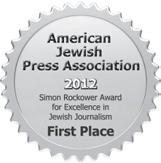

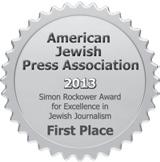

After a series of “conversations, convenings and with a shared sense of purpose,” the vision for the center began to take shape, “championed by many Holocaust survivors, scholars, civic leaders, artists, philanthropists and educators,” Gealer said.
Gealer told the survivors who came to the groundbreaking on Thursday, June 5, despite the heat and early hour, that their “presence is a powerful reminder of why this center matters. We carry your stories forward with deep reverence and unwavering responsibility.”
Before the plans were drawn up for the center, Phoenix had stood out as the largest city in the United States without a Holocaust museum or education center for students. Many of the people who dedicated time and money to fill this hole were also present, including Steve Hilton, whose $4 million donation in 2023 Gealer called “catalytic” to the project.
Mayor Kate Gallego also singled Hilton out for honoring “the legacy of his father, a survivor and brave hero, who fought in the 1943 Warsaw Ghetto Uprising.” Gallego, the first Jewish woman to serve as the city’s mayor, found it especially meaningful that the city would help fund the center after Phoenicians voted in favor of a $2 million bond for it.
“It has been a difficult time period for the Jewish community, so for the voters of Phoenix to say we want this in our city is really meaningful to me,” she said.
Gallego called it a powerful “moment of unity” that all levels of government in Arizona have garnered support for the new Holocaust education center.
In fact, several Arizona public officials were in attendance on Thursday, including Gov. Katie Hobbs, Arizona Superintendent of Public Instruction Tom Horne, Senate President Warren Petersen, State Representatives Alma and Consuelo Hernandez, Phoenix City Councilman Kevin Robinson and Maricopa County Sheriff Jerry Sheridan, among others.
Horne, Alma and Consuelo Hernandez are all Jewish, and Alma Hernandez was one of the driving forces behind the passage of legislation requiring Holocaust education by statute in 2021.
“There was a time when we were behind on Holocaust education, but now we are going to be national leaders,” Gallego said.
The governor spoke about meeting local Holocaust survivor Charlotte Adelman and how impressed she was that even at the age of 93, Adelman was still doing what she could to share her story of survival.
“We have a responsibility to make sure that nobody forgets what happened, and continued education about the Holocaust is pivotal to doing that and also honoring the lives that were lost,” Hobbs said.
While the state now requires that the Holocaust and other genocides are taught at least twice between seventh and 12th grades, Hobbs said the new center, with
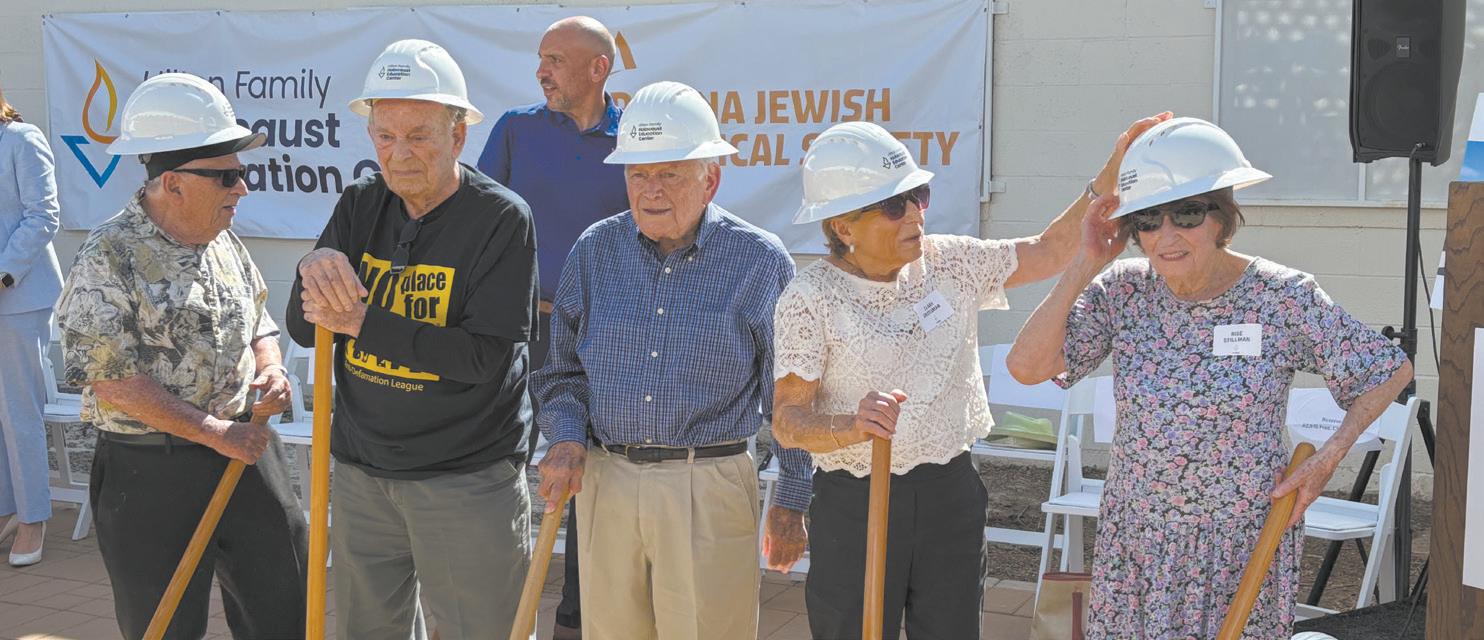
its interactive exhibits and digital resources, will continue the work of Adelman and other survivors, allowing students to “see history in person,” something that will offer “a profound effect that cannot be felt in the classroom.”
Having visited the U.S. Holocaust Memorial Museum in Washington, D.C. and Yad Vashem in Israel, she said she understood firsthand the powerful experience those places offer and how the new center will enhance what students learn in school.
“Arizona will always be an ally and partner to the Jewish community, but we must back those words with actions,” Hobbs said and pointed out the appropriation of $7 million in last year’s state’s budget for the new center, calling it the state’s way of saying, “We put our money where our mouth is, and visitors and residents will know that we value Jewish history here in Arizona.”
Hilton teared up for a moment when he spoke about his father’s history — surviving five concentration camps between the ages of 14 and 16 — and how he was forced to watch his own father succumb to the “unimaginable horrors” of one of those camps. Hilton’s father lost most of his family in the Holocaust, but he survived, came to Arizona and raised a family. Hilton said he always had faith that the future could be better.
“If he were standing here today seeing his dream become a reality to the state that he loved and called home, I know he would be overwhelmed with pride, not just for his family, but for all of us who refuse to let history fade into the shadows,” Hilton said.
He also emphasized the huge potential the new center will have to teach young people, not only about the Holocaust, but invaluable lessons in overcoming fear and hate. Mostly, visitors will learn how “to be an upstander and not a bystander.”
Hilton spoke about a rise in antisemitism and prejudice “against anyone who is seen as other,” and insisted, “That is why this center matters. That is why education matters. Ignorance is fertile ground for hatred, but real, honest, empathetic knowledge is a powerful antidote.”
After Hilton and the survivors broke ground, the political leaders, donors and community members were invited to take a shovel and participate in a symbolic dig for the new center. The enthusiasm
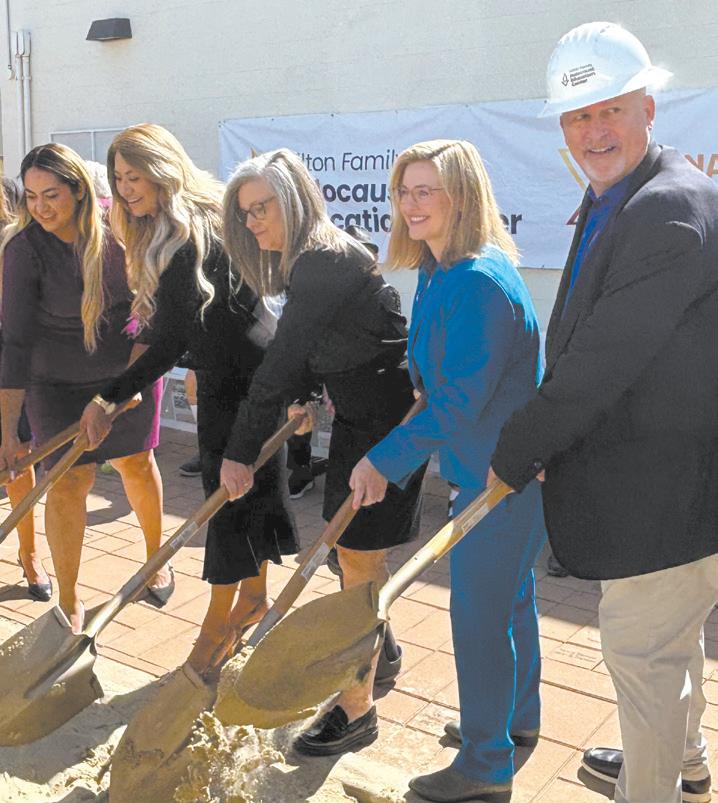
was palpable, and people were abuzz with the excitement of finally seeing the construction of something that’s been talked about for so many years get underway.
“This is the most exciting day before the grand opening,” Sheryl Bronkesh told Jewish News. As the past president of the Phoenix Holocaust Association, Bronkesh worked diligently for the passage of the Holocaust education legislation and for the establishment of the new center.
“It’s emotional and it’s exciting,” Rabbi Aviva Funke told Jewish News. Her father, Frank Jacobson, is the Holocaust center’s management consultant and capital campaign director making this project dear to her both as a Jewish educator and a supportive daughter.
“This feels like a culmination of his life’s work in action,” she said.
Project Manager of the Hilton Family Holocaust Education Center Rabbi Jeffrey Schesnol called the center “the most important professional project I’m involved in for the whole rest of my life.” He has spent the last decade working to bring this project to fruition and expressed his gratitude to everyone who has done their part.
“This will affect generations to come, and to have been any part of it at all, to assist, to help, to guide and participate is an honor and a privilege,” he told Jewish News.
“I just hope it creates a cohesiveness within the community,” Temple Solel member Jay Levinsohn told Jewish News. JN For more information, visit hfhecaz.org.
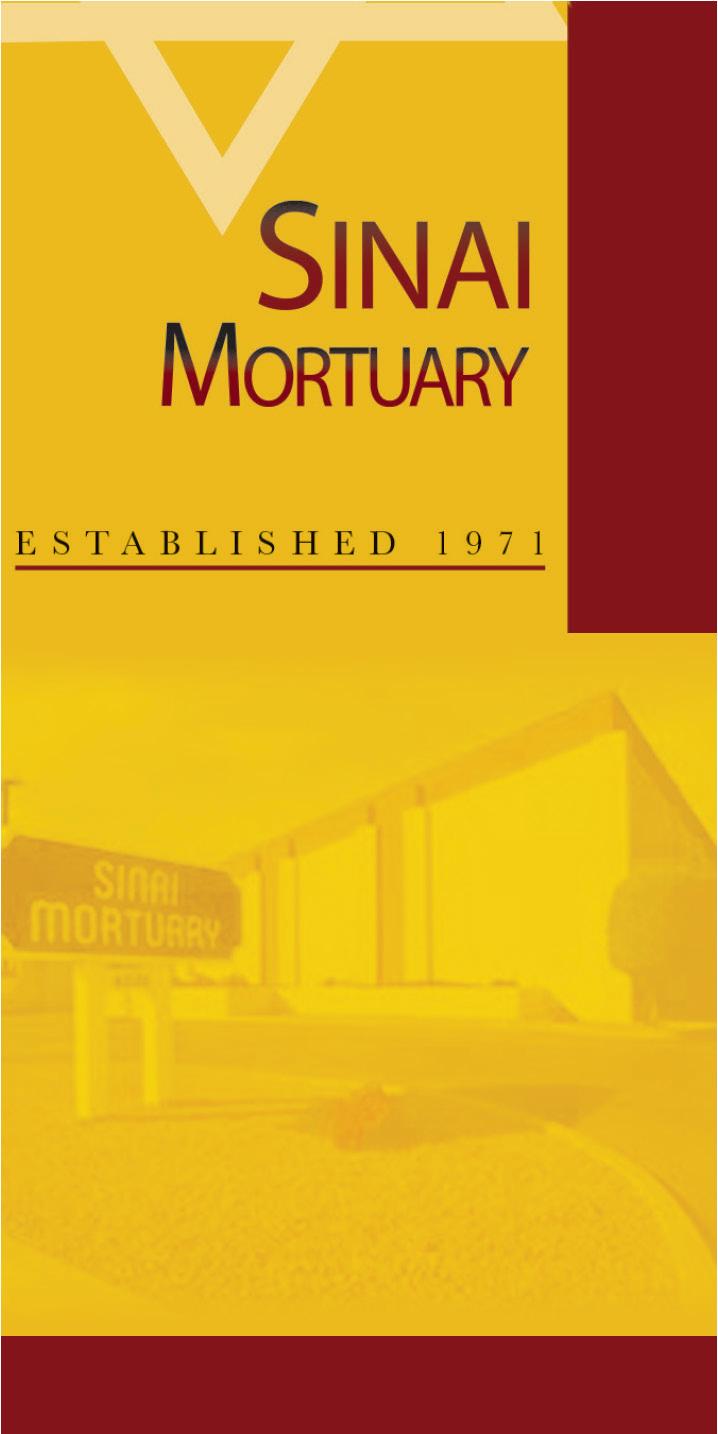
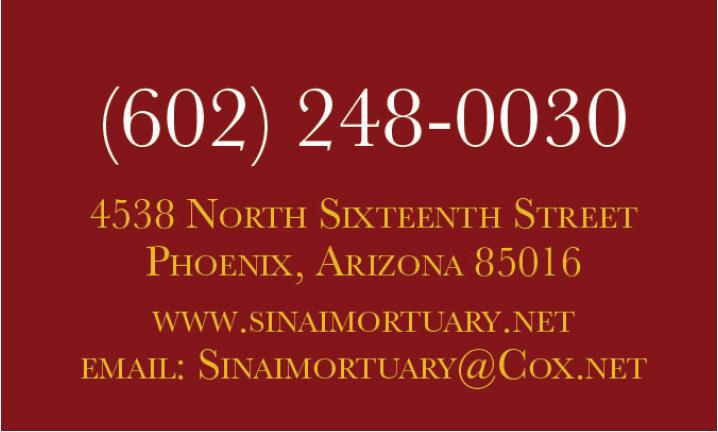
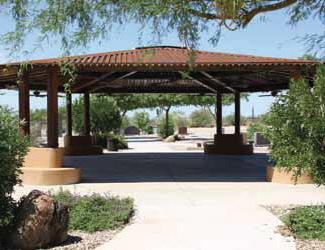
SHANNON LEVITT | STAFF WRITER
Y
ossi Klein Halevi, author, journalist and senior fellow at the Shalom Hartman Institute in Jerusalem, sat down with Valley Beit Midrash President and Dean Rabbi Dr. Shmuly Yanklowitz to explore “The End of the Post-Holocaust Era: How Oct. 7 Changed Everything” on Tuesday, April 22, at Scottsdale’s Congregation Or Tzion for the Zeichick Family Lecture.
The 90-minute conversation covered a wide range of issues, including Halevi’s thoughts on how the Hamas attack impacted the Jewish success story postHolocaust, the rise of the hard right in Israel and his youthful involvement in an extremist movement. The conversation also touched on the rise of anti-Zionism and the need for mutual understanding between Israelis and American Jews.
Alan Zeichick, whose parents are the namesake of the annual event, said they taught him valuable lessons about forgiveness and that “everybody has something to teach me, if only I am willing to listen.” Given Halevi’s 2018 book, “Letters to My Palestinian Neighbor,” an imagined dialogue between an Israeli and
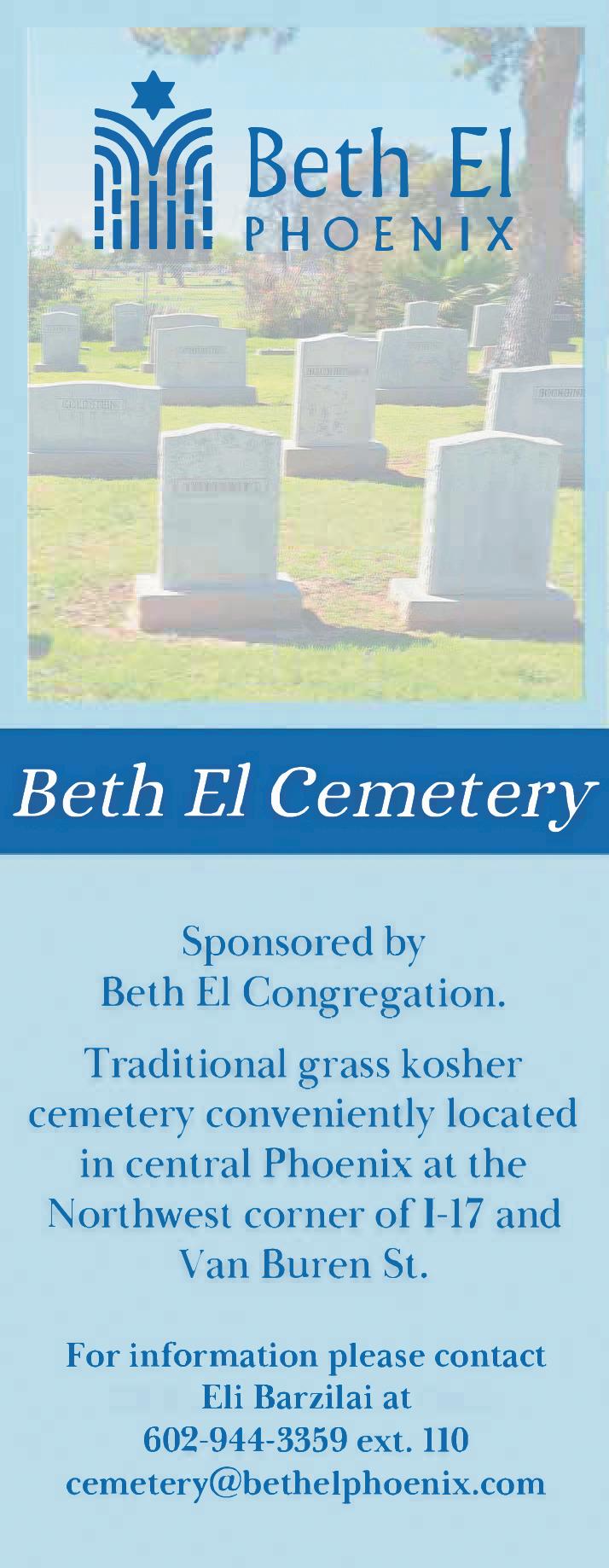
a Palestinian, Zeichick said he seemed the perfect conduit for those ideas.
Yanklowitz began the conversation by asking about Halevi’s personal spiritual practices, a question that surprised him.
He is so used to speaking exclusively about Israel that he enjoyed having the chance to talk about his “inner life,” he laughed. He explained his meditation practice, which is based on Kabbalistic techniques.
“I belong to, in some ways, all the denominations and, in some ways, none of them,” he said.
Then Yanklowitz got to the meat of the evening, asking him about his assertion that Oct. 7 marks the end of the post-Holocaust era, a period of time that Halevi often refers to as “the most extraordinary in Jewish history.”
From the end of World War II until Oct. 6, 2023, the Jewish story was one of overcoming what had been “total powerlessness” and developing both a successful Jewish community in the United States and founding the State of Israel, creating “the peak moments of Jewish power,” Halevi said. “Oct. 7 went part way to upending that achievement.”
He said this moment was particularly disorienting because it hit both of those successes as well as showcasing Israel’s failure to save 1,000 Jews within its borders. Still, he was sanguine in his prediction that the Jewish success stories cannot be fully unraveled while admitting that the shock of Oct. 7 will take generations for Israelis to process.
He also spoke about his upcoming book about the post-Holocaust era, which outlines the successes of the 75 years following the war. After having survived the nightmare of Hitler, the only way forward was a full embrace of Zionism. He called it a “frank celebration of the Jewish return to power.”
This led Yanklowitz to ask about
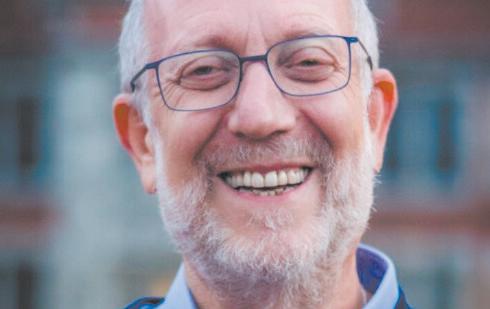
Jews who primarily identify as Zionist versus those with a nationalist identity.
Halevi clarified that he celebrates Jews’ reclamation of power from a place of powerlessness, not power for its own sake.
Halevi said he sees the Orthodox and far-right camps in Israel “longing for the biblical era, when Jews produced Samson, the judges, war and kings — when we were in the vigor of our uncomplicated, and sometimes, amoral youth.”
Yanklowitz asked him to expand on the fact that as a teen, Halevi was a follower of the far-right Meir Kahana and joined his Jewish Defense League in Brooklyn, New York.
“What I couldn’t bear growing up was the absence of Jewish rage,” he said. Kahane gave voice to the rage he sought, but Halevi’s infatuation did not last long. Kahane would go on to be convicted of acts related to domestic terrorism, and was best known for advocating for the expulsion of all Palestinians from Israel, Gaza and the West Bank, including Palestinians who were Israeli citizens.
“It depresses me to no end that, however inadvertently, my friends and I were part of helping create one of the most monstrous movements in contemporary Jewry,” Halevi said.
Yanklowitz also asked him about how his work with Palestinians had changed, explaining that his own relationships with Muslims had suffered a major setback since Oct. 7.
“The post-Oct. 7 reality has been very sobering,” Halevi said. For a long time, he worked with Muslim partners without preconditions. As long as they were willing to sit with him, he didn’t care what they had to say about Israel, even if they believed in its destruction.
“I’ve heard it all. I’ve heard the worst things you can imagine, and some surprisingly beautiful things as well. And that was my commitment to MuslimJewish relations,” he said.
Now, he will not engage with anyone who celebrates or minimizes the events of Oct. 7. Some of his relationships have remained strong, but he’s lost many Muslim partners, he said.


One other hopeful thing he noted was growing Israeli interest in the Diaspora. Before Oct. 7, Israelis knew very little about American Jewish life, and he has been heartened to see the Israeli media talking more about it.
Ironically, it comes at a time when Jews outside of Israel are “turning away,” he said.
“We’re like the old cliché of two ships passing in the night, and it would be a historic tragedy if the two population center points of the Jewish people today couldn’t speak to each other,” he said. JN












For more information on Valley Beit Midrash programming, visit valleybeitmidrash.org.
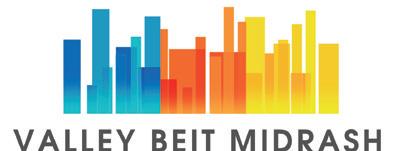

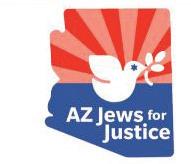
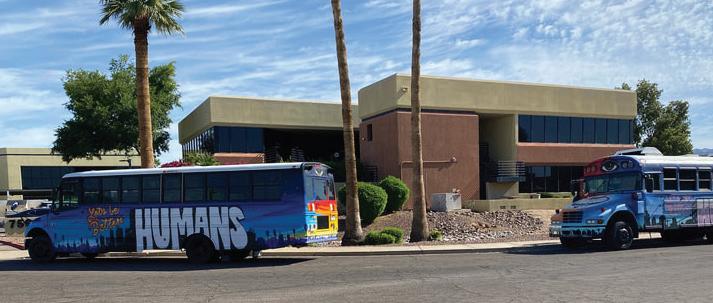
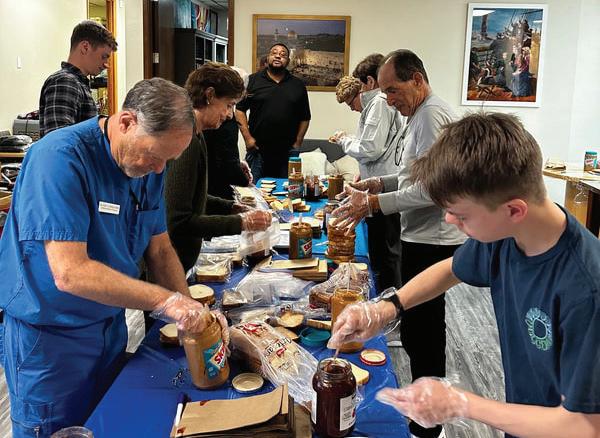
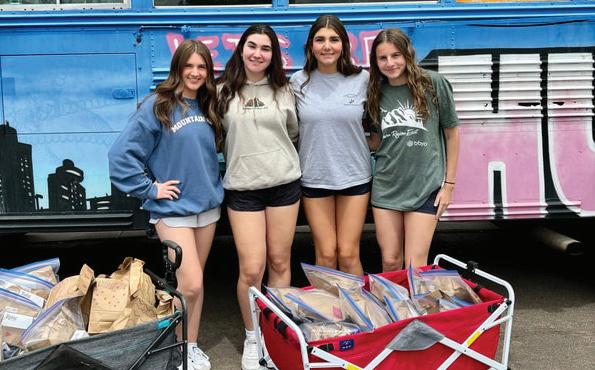
• Each year, Arizona Jews for Justice takes hundreds of youth, teens, young adults, and people of all ages on transformative servicelearning excursions aboard the Let’s Be Better Humans buses.
• Our Outreach Team is in the streets every day, delivering essential items such as food, water, hygiene supplies, clothing and more to people experiencing homelessness in our community.
• We serve approximately 50,000 people each year and engage over 1,000 volunteers.
• We offer family-friendly volunteer opportunities for people of all ages.
• Serve with us on one of our buses, at our office assembling supplies, or invite us to come to your synagogue, camp, or school to lead a service project for your community.
• Visit www.arizonajewsforjustice.org or email arizonajews4justice@gmail.com to learn more!
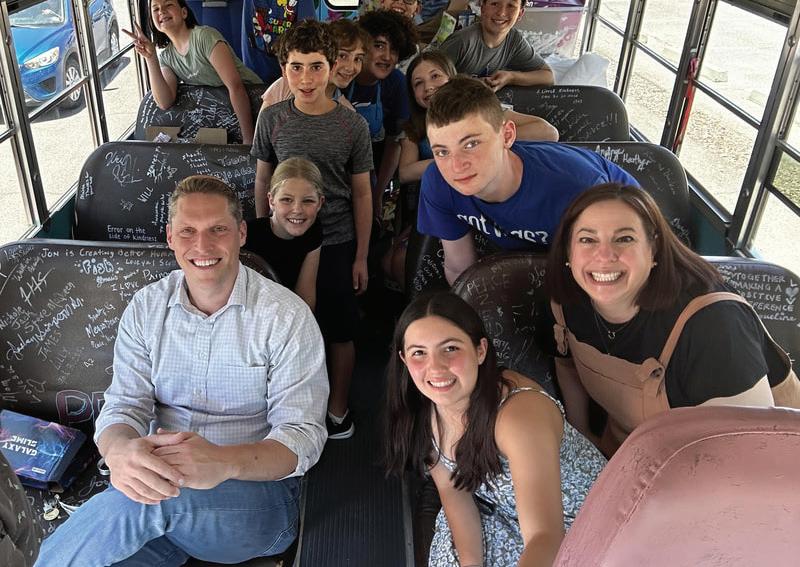
SHANNON LEVITT | STAFF WRITER
Walking into the National Memorial for Peace and Justice in Montgomery, Alabama, 24 Temple
Solel members encountered hundreds of steel columns hanging from a roof. Each column had the name of an American county and the names of people lynched there; some were marked with only the word “unknown.”
The columns, which resemble headstones, start at eye level. Soon the floor descends, and visitors must look up to see the dangling columns, forcing them into the same position as those who watched the actual lynchings.
“You get to a place where you’re straining your neck to look up,” Helene Weitzenkorn told Jewish News. “You’re looking at a sea of hundreds of names of people who were lynched. It gives you the dimension of the horror in a concrete and visual way.”
Weitzenkorn and other Solel members said the memorial was a highlight of their “Civil Rights Journey” to Alabama and Georgia the last few days of March. Led by Solel Rabbi Debbie Stiel, the trip was a chance for Solel adults to trod the same path Solel teens did a year earlier.
Last year, Laura Miller was at a Shabbat service when the teens talked about the trip.
“Listening to them talk, I thought it would be a wonderful experience, so I told Rabbi Stiel that we should have the same trip for adults,” Miller told Jewish News.
She wasn’t the only one.
This kind of trip has been on Reva Steinberg’s bucket list for a long time.
She had heard from friends how moving a trip to Selma was years ago, so when she heard the teens talking about it at Shabbat, “I went to Rabbi Stiel and said I’d like to do it with an adult group,” she told Jewish News.
Among other things, the teens talked about meeting people who were involved with the civil rights movement, which excited the adults, Stiel told Jewish News.
“Meeting these people who are still living in the South and have amazing stories was so inspirational,” Stiel said.
She was impressed by Bishop Calvin Woods, in particular. Woods, a prominent civil rights organizer and minister, has the distinction of being the last person in Birmingham to see Martin Luther King, Jr. alive.
“He told both the teens and the adults that we still need to be in the fight. To hear him speak and to sing with him was so inspirational. You can feel the spirit of God moving through him,” Stiel said.
Having been on both trips, she said the teens and adults each got a lot out of the experience, but had different reasons for going and varying takeaways.
“For the teens, the biggest takeaway was the power of faith to create change. I was thrilled they saw that religion can move us forward,” she said.
Many of the adults felt they knew a lot about the civil rights era, but were very emotionally impacted by experiencing the sites on a personal level, feeling the weight of history.
“Reading firsthand slave accounts and seeing all the artistic renderings in the Freedom Monument Sculpture Park was
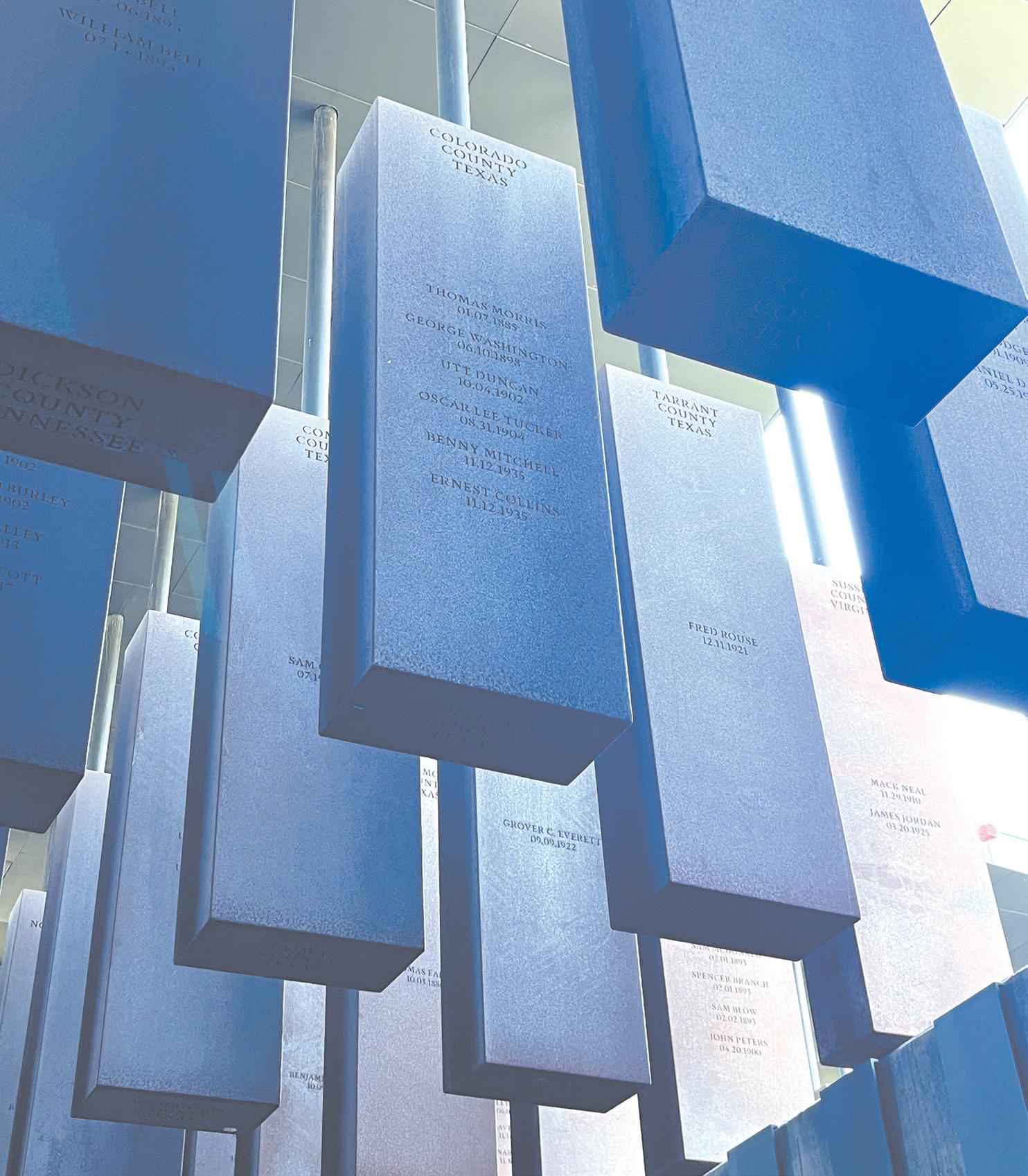
so impactful for the adults. They felt the weight of it all differently than the teens,” she said.
Weitzenkorn, who was visiting the museums for the first time, agreed.
“You don’t learn that much about the history in school — you learn some dates and that slavery existed, but get no exposure to the emotional side of slavery. This was a deep dive. Seeing the river where slaves were transported and seeing the artwork depicting slavery — you see the agony,” she said.
“I had never been to any of those places, and every museum we went to was heart wrenching. I learned more about

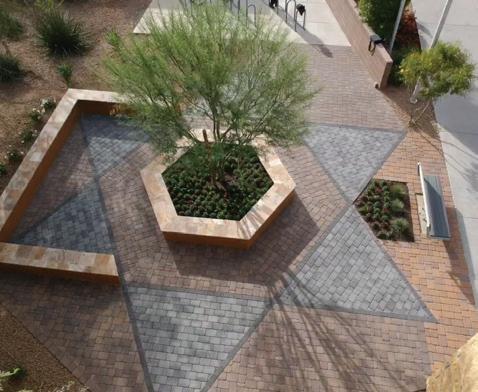
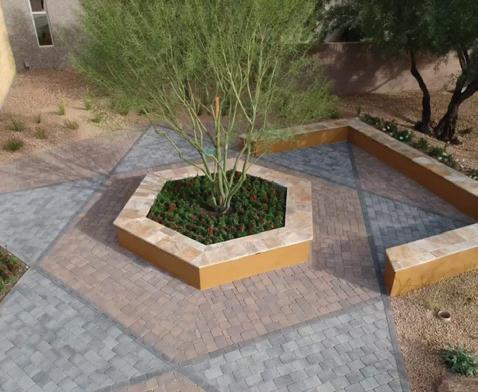
Willmeng Construction, Inc. has F/T Project Manager 2 in Phoenix, AZ. Duties: Mnge, coord, & supervise subcontrctrs, vendrs, & personnel to ensure work compltd on time w/in budget & qualty stdrds; Write bid pckgs to define prjct scope; Prep subcontrcts, P.O. agreemnts, & cost cntrl budgets; Mnge monthly billing process. Requires: MS Constrctn Mgmt, Civil Eng, or rltd + 6 mos exp OR BS Constrctn Mgmt, Civil Eng, or rltd + 3 yrs exp. Bkgrd check reqd. Email resume to careers@ willmeng.com, Incl Job Code WCLP-PM2-AK.
the movement than I ever knew, and I thought I knew a lot. Any adult who is interested in American history, and wants to understand what happened and what’s happening, needs to go on this trip,” Miller said.
“When you go there and you’re seeing it, it’s so different from reading about it or seeing it in a movie. You feel it,” Steinberg said.
Bryan Stevenson, founder of the Equal Justice Initiative, the nonprofit organization behind the Memorial and the Park, was inspired, in part, by the Holocaust Memorial in Berlin, which he found to be a powerful way to give a sense of the scale of the bloodshed.
That view hit the mark with Weitzenkorn and others.
An the Memorial, the guide told visitors to Google some of the names of the lynching victims.
“I did that, and one person was lynched for looking at a white woman; another had spilled molasses on someone,” Weitzenkorn said.
Steinberg loved everything about the trip, but said the lynching memorial was especially moving. The sensation of having to look further and further up as the columns rose was unique, but she was most struck by the dozens of sculptures.
“That so many artists could portray so much evil in such a beautiful way was remarkable. Plus, there’s the juxtaposition
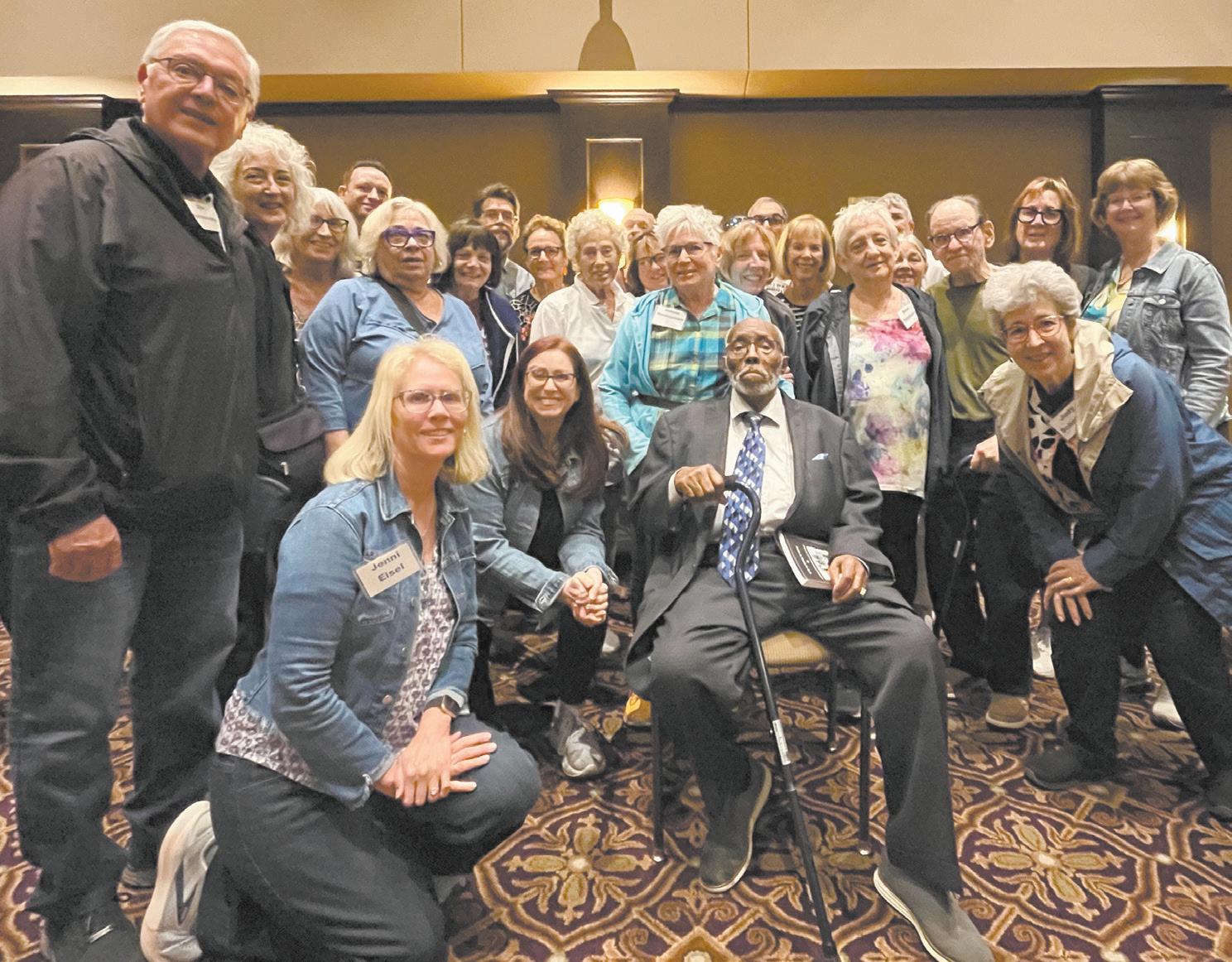
of being in a beautiful setting on a spring day but seeing the story of a horrible history,” she said.
Though the trip was packed with other emotional landmarks, such as King’s tomb, Birmingham’s 16th Street Baptist Church that was bombed by the Ku Klux Klan in 1963 (killing four little girls), the Edmund Pettus Bridge that was the site of the brutal “Bloody Sunday” beatings of civil rights marchers, it ended on a much more positive note when they joined a Sunday service at Atlanta’s Ebenezer Baptist Church, where King was ordained.
“We went from crying to being joyful,” Miller said.
Steil called it “a trip from darkness to light, from degradation to uplift.”
Georgia Senator Raphael Warnock is the church’s senior pastor and he gave the service on the Sunday the Solel group visited.
“It was an absolutely joyful experience,” Miller said.
It was Steinberg’s first time in a Baptist church. She said she felt very welcome there.
At 77, seeing these sites for the first time, she realized that though she was in college during the peak Civil Rights years, they “kind of passed me by.” This trip made her feel that she could have been a part of it.
Miller, too, didn’t experience the history while it was happening.
“I was graduating college, getting married and having my first child. I didn’t learn as much as I should have. This trip was eye opening and the best experience,” she said.
Solel planned the trip with Etgar 36, which leads various groups through Black history in the American South with a goal of inspiring social justice action.

[pie-per-fel-oh-ship] noun
1. An opportunity for nonprofit leaders to reach, retool, and revitalize.
2. A Piper Fellowship can be transformational for both the leader and the nonprofit organization.
Sentence: “It gave me perspective; my Piper Fellowship was life-changing.”

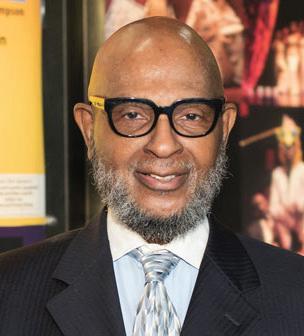
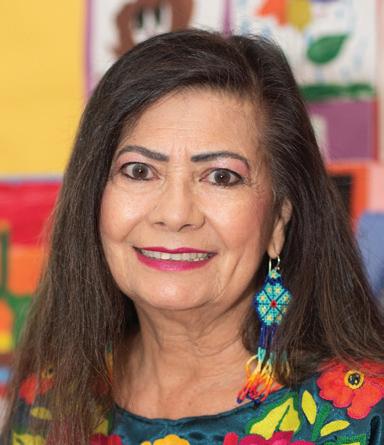
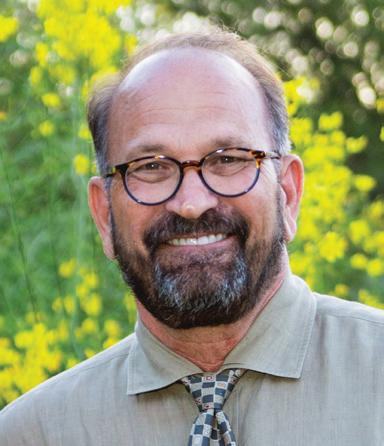

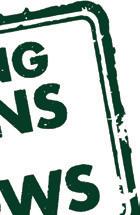

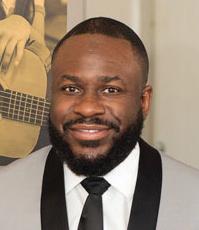
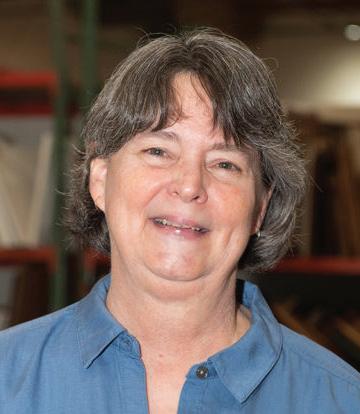

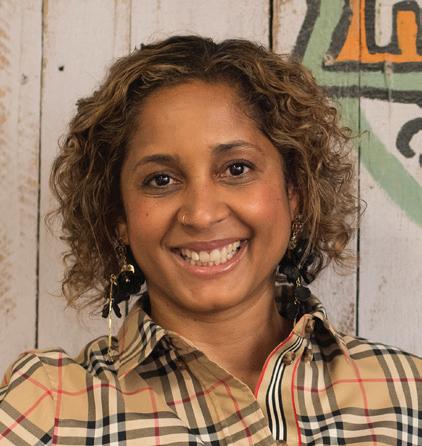
Steinberg, who is very interested in social justice, recently went to her first protest at Arizona’s capitol. After returning from the trip, several participants got together to come up with a social justice project “to continue the momentum and the camaraderie,” Steinberg said.
“It makes you feel like you want to do something.” JN
SHANNON LEVITT | STAFF WRITER
Allie Koss has always known she was destined to help animals. Recently, she proved just how committed she is to fulfilling that destiny when she created a safe space for rescued burrowing owls on the campus of the Arizona Agribusiness & Equine Center, her high school in Paradise Valley.
Koss discovered the owls’ plight while she was volunteering at Wild at Heart Raptors, a rescue, rehabilitation and release center for birds of prey in Cave Creek. Birds weren’t even her thing when she started, but she had the 120 hours of community service her school required of every student to complete, a driver’s license and a desire to work with wild animals.
“My parents don’t really like birds, but I figured I’ll just see what it’s all about,” Koss told Jewish News. Quickly, she developed a passion for raptors, and some of those little Arizona owls burrowed their way into her heart.
She spent hours doing the grunt work at the rescue center: filling water bowls, cleaning enclosures and doing food prep — including rounding up dead mice and rats for the birds. She worked her way up to the fun stuff, helping educate visitors with the birds that are permanent residents of the rescue center.
The burrowing owls present a unique problem for a sprawling urban area like the Valley. While they gravitate towards open deserts, they also end up in golf courses, airport medians and construction zones. Wild at Heart volunteers go in before construction begins, trap the owls and take them to the center, hold them for two months so they don’t return to their dangerous — and most likely destroyed burrows — and release them somewhere safer.
Koss realized that her school’s property had a perfect place to build man-made burrows for the owls before releasing them.
“They’re basically getting buried alive at construction sites, so I decided to create a release site at my school,” she said.
Her school, which is focused on agriculture, was open to the idea.
“Wildlife is very underrepresented within the agriculture community, and just having its presence on campus is important for students of agriculture,” she said.
Coming up with a grand idea is one thing, executing it is quite another.
First, she applied for and received $1,100 in grant money from the National FFA Organization, as well as the Arizona FFA. Her parents donated $150 to cover the rest of what she needed. Koss is an organized honors student, which came in handy, given she had to arrange for and assist the habitat coordinator at the rescue center when he came to campus to plot the land and get the City of Phoenix and Arizona Department of Transportation to OK the location to build burrows.
“A lot of it was just me taking an initiative and being like, ‘Hey, this would be really cool and useful for our classes because students can help and also observe the owls,’” she said.
With some assistance from her classmates, she dug trenches, built burrows using tubing, placed the owls in the trenches and filled them in with the owls snuggled inside. She also had to get the owls mice every day. With all the effort involved, Koss was mindful that her creation was always a temporary respite for the owls.
“People misinterpret relocation. It’s
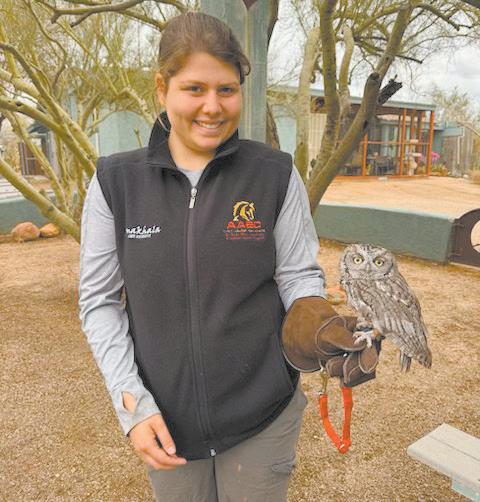
“I KNEW I WANTED TO BE A VETERINARIAN SINCE I WAS EIGHT, BECAUSE I LOVE ANIMALS.”
not a permanent home for them. We don’t want the owls to go back to their other site, and this is just to break the tie with their previous home on a Goodyear construction site, which is probably gone now,” she said.
Students are told their senior projects should make a positive impact on their community and put research into action.
Koss’ technical and laborious senior project impressed the judging committee
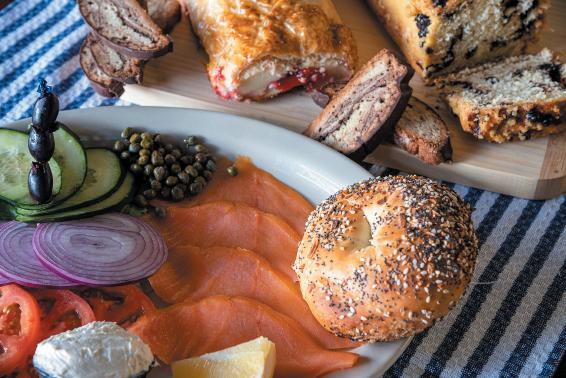
so much, her advisor told her it redefined what a senior project should be for generations to come.
“You did a whole lot, and you did it well,” he told her.
Rabbi Aviva Funke, who was the principal of the Bureau of Jewish Education of Greater Phoenix’s Hebrew High during the four years Koss attended, came to watch the presentation. She was


MALA BLOMQUIST | MANAGING EDITOR
Phoenix resident Shauna Kupetz McRae
dreamed of opening another store one day after she closed JAM more than a decade ago. JAM was an artisans’ boutique and community space located in a historic home in Old Town Scottsdale.
“It was everything handmade, homemade, reused, repurposed and we had classes in arts and social interests, and people would hang out there. It was super special,” she said.
Her new venture, Jonathan and Max, is a boutique selling décor, art, accessories and gifts for men, women and children. She said some of the items she sells, like linens, candles, vases and stationery, harken back to her southern roots and a fondness for entertaining. But she is also attracted to edgy art and cites ceramic cigarettes as an example. She is also trying to curate some Judaica and offers Yiddish stationery.
“It’s very, very, random,” said McRae. “I love beautiful, subtle colors, but I also love hot pink. So, the store is a juxtaposition. I am buying things that I like and that I am interested in.”
She admitted the new address, 5202 N. Seventh St. in Uptown Phoenix, is not necessarily the best location for foot traffic and walk-in customers, but it’s close to home and their three children, and even closer to her husband, Ben, who works under the same roof.
McRae has been in real estate since 2002 and initially planned to buy a property down the street for her husband’s architecture firm, Benjamin Studio. When that did not work out, she showed him the current space, but he felt it was too big for his needs.
“I was like, do you know what, just take the spot. It is ideal. It’s literally four minutes door to door. And then I said, ‘I’ll just start another store in there; it’ll be fun,’” said McRae.
While running JAM, she started business coaching under JAMMIN Lifestyle and continued to do that after the store’s closure, traveling around the world.
“When I owned JAM, I thought I was going to franchise it and then when I decided not to, I was doing so well with my business coaching, I felt complete with the store. Then I just started traveling for business coaching and it was a lot of fun,” she said.
She admitted that since she moved to Arizona in 2001, she always had “one foot out the door.” McRae only began “appreciating it more” when she stopped traveling as much in 2017. She has been with her husband since 2019.
She said she has not found a congregation to call her own yet in the Valley, but she enjoys going to various synagogues for educational programming, High Holidays
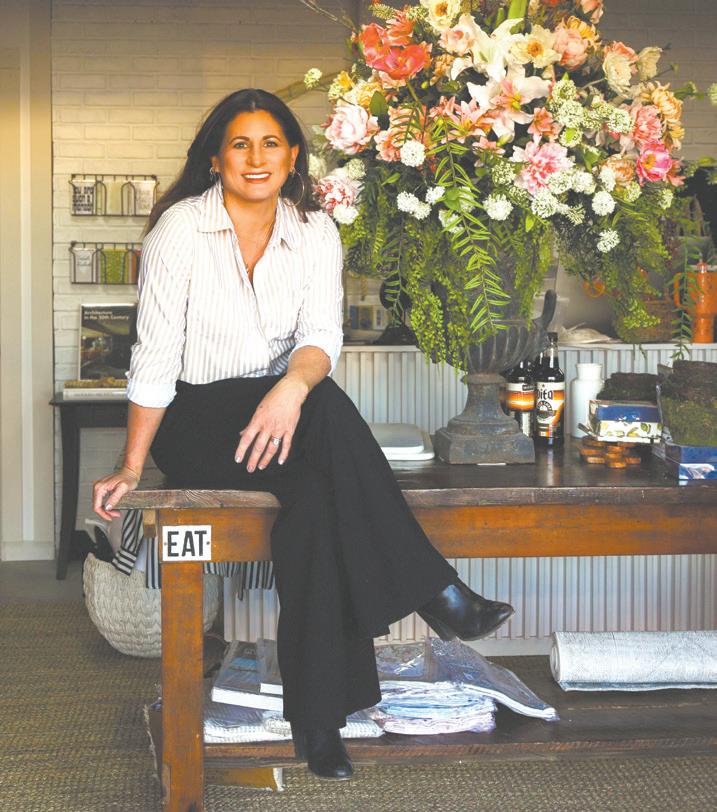
or Tot Shabbat.
McRae was raised in a Conservative home in Louisiana, moved to El Paso, Texas, in high school and attended college at the University of Texas.
Her younger brothers, Jonathan, who lives in El Paso, and Max, who lives in the Valley, were the inspiration for the name of her business.
“It was Feb. 1 when we signed a lease and I didn’t have a lot of time to think of a name,” she said. “My store was JAM, my company is JAMMIN Lifestyle and now here we are again. I’m like, let’s spell it out — Jonathan and Max.”
She also wants to recreate something from JAM with local artists having a place to highlight their work.
“Starting in the fall, I will have different artists bring their art and showcase it,” she said. “When people come in, they would be greeted by an artist, and you could see their stuff on the featured table and get to know them.”
She likes the idea of a gathering place where creative people from different fields can come and go. She thinks both her husband’s firm and her boutique will create that environment. Also, their close proximity to home allows them to pick the kids up from school and not miss events.
The couple had a mural painted that spans the length of both businesses saying, “Something good is gonna happen.” McRae hopes that people take photos with it, let the message sink in and maybe change their perspective.
“I had an opportunity to travel a lot, and different countries do things that work for their communities,” she said. “And I saw in other places where families are really connected, and I think that just resonated with me. So, something like what we are doing is different, but it makes sense to me. We will be doing all the things we have to do, in a way that works for us.” JN
For more information, visit jonathanandmax.com.
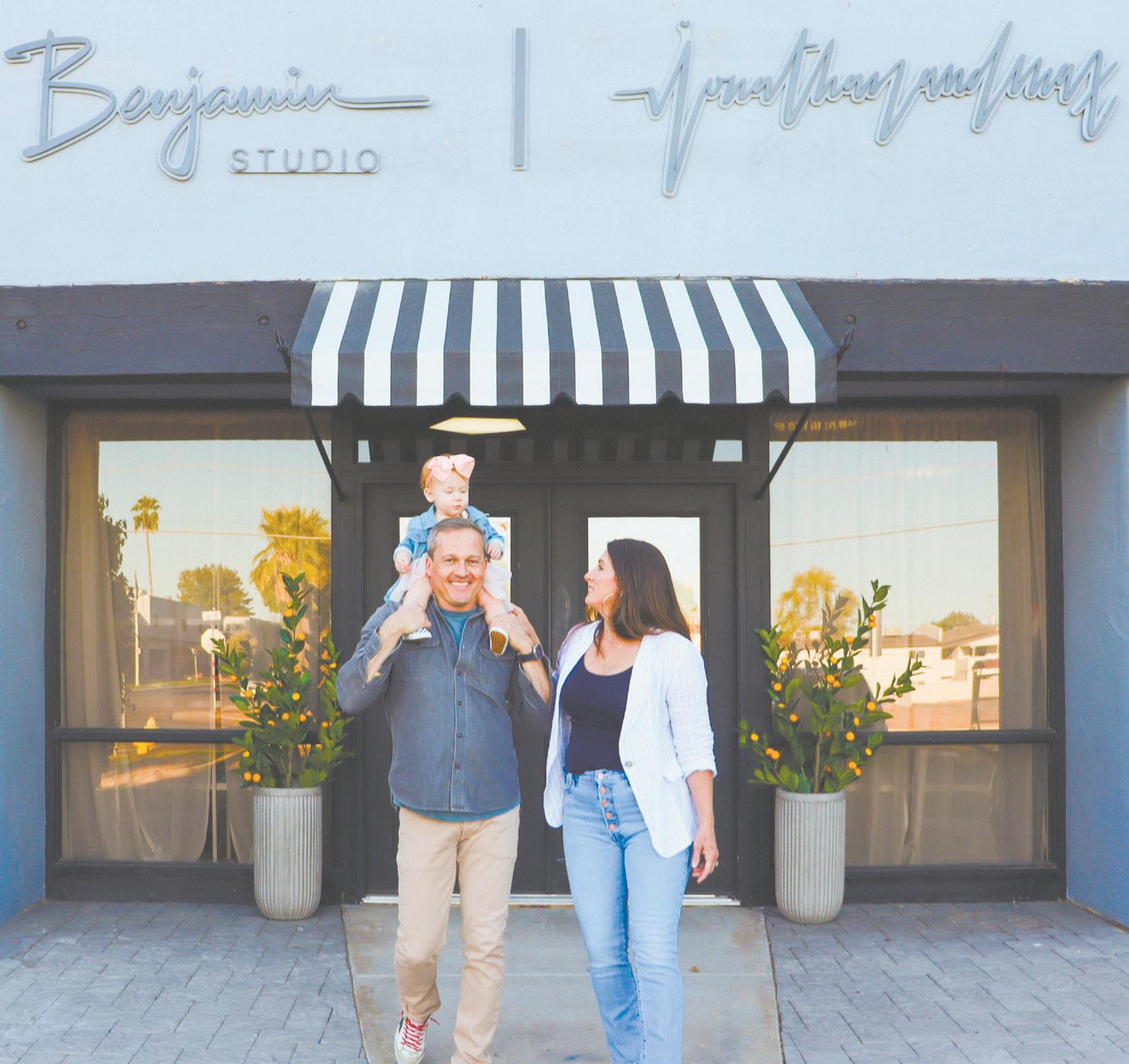


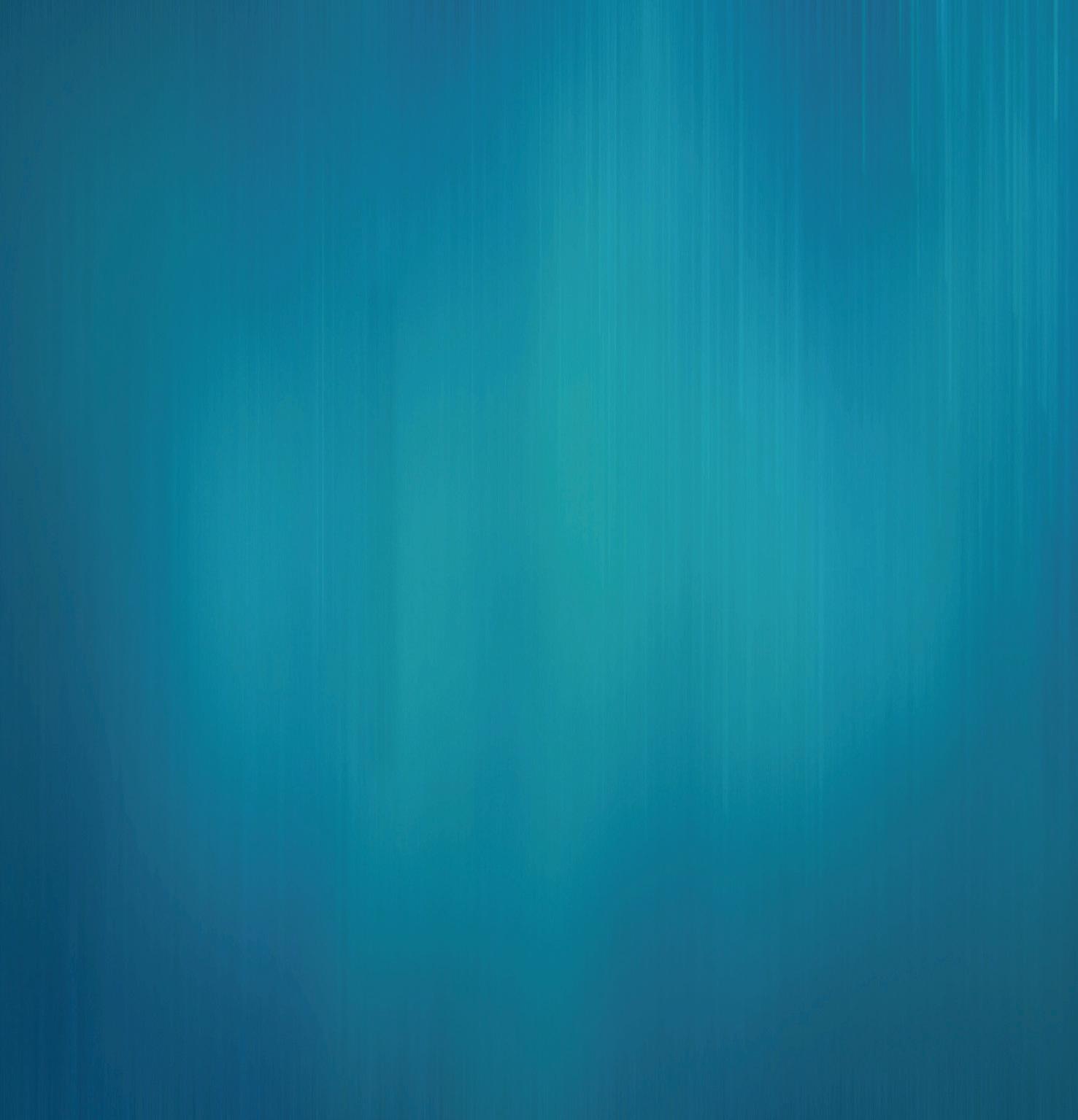




MALA BLOMQUIST | MANAGING EDITOR
The term “420” has been associated with cannabis use since the 1970s. The consensus of its origin is attributed to a group of friends from San Rafael High School in Marin County, California, who would meet up after school at 4:20 p.m. to get high. Once Arizona and other states began legalizing marijuana for recreational use, April 20 has become a day for dispensaries to hold sales to attract new customers.
One local business, The Giving Tree Dispensary in North Phoenix, decided to “flip the script” and created “420 Acts of Kindness,” a community-powered campaign to turn 420 into a movement of compassion, not just a moment of consumption.
“Since legalization, 420 has become more about sales than community. We wanted to reclaim the day and turn it into something even more powerful,” said Lilach Mazor Power, CEO of the Giving Tree Dispensary. Power, who is Jewish and grew up in Israel, opened the Giving Tree Wellness Center in 2013, catering to those with a medical marijuana card. Shortly after sales of recreational marijuana began in January 2021, Power opened the store in
North Phoenix.
But giving back is not a new thing with the Giving Tree. Power has always supported her employees volunteering in the community, and they also fundraise throughout the year for causes and organizations like Chrysalis, which provides shelter for victims of domestic violence; the National Brain Tumor Society; the Pat Tillman Foundation, which supports active-duty service members and veterans; and HALO Animal Rescue. To date, they have donated more than $90,000 to nonprofit organizations.
“We’re building such a beautiful camaraderie with our community, so we wanted to do something where it wasn’t about coming in on 420 to get high for cheap,” said Ashley Feagins, marketing manager at the Giving Tree. “We wanted to make it a whole movement of how we can spread kindness, especially because the world is so crazy right now — we just need more positivity.”
Feagins, along with five other coworkers, volunteered at The 3000 Club’s Market on the Move (MOM). They contributed 17 hours of their time helping to
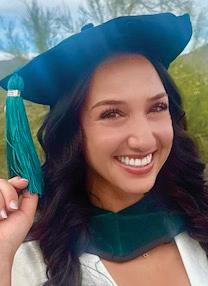
Today is about celebrating you, your accomplishments and your journey. You’ve earned this and we are SO proud of you!

Mom, Dad, Trevor and Delaney
package and sort produce for distribution. At the MOM warehouse in Phoenix, people can purchase up to 60 pounds of produce for a $10 donation. This prevents excess produce from ending up in landfills and allows those who buy it to share it with anyone they know is in need.
She also participated in the 2025 Phoenix Kidney Walk on Sunday, April 6. Her co-worker Stef’s son has polycystic kidney disease and will need a transplant in the future.
“Stef ended up raising money for the walk (more than $2,000) and invited some of us to join,” said Feagins. “I’ve never participated in anything like that before. Being able to see the impact of supporting something that’s so close to somebody else’s heart is really cool because you feel like you’re seeing that person, and that family, on such a different level.”
They surpassed the original goal of achieving 420 acts of kindness within the six weeks leading up to April 20, ultimately reaching 525.
Employees weren’t the only ones involved. One customer, a pharmacy technician, volunteered to help dispense medi-
WILDLIFE CONTINUED FROM PAGE 8
also asked to be a judge.
“It was a project unlike any of its kind,” Funke told Jewish News. “To say I was blown away would be an understatement.”
After a few years of getting to know Koss, Funke described her as “extraordinary and someone committed to taking care of the world — tikkun olam in action with a heart of gold.”
Koss’ commitment to wildlife is “doing Torah with her hands,” she said.
Before joining Hebrew High with her best friend, Koss felt disconnected from her faith, but she was determined to “start my Jewish journey,” with her friend. “We absolutely loved Hebrew High and Rabbi Aviva. She and our other teachers helped us, gave us great advice and taught us so much about our Jewish identity,” she said.
Before joining the program, “I really lacked a Jewish connection. I just didn’t understand how important it was, but Hebrew High really brought that back,” she said. When she attends the University of Arizona in Tucson this fall, she’s determined to involve herself in the campus Hillel and Chabad and attend services regularly.
Thanks to taking various science and math classes at Paradise Valley Community College, Koss will be starting college as a junior, and she’s ready to plunge into the study of natural resources with an emphasis in wildlife management and
cation to low-income families; another helped a woman in a wheelchair shop for groceries when she noticed the woman couldn’t reach items; and a guest and his family made care packs for the unhoused in downtown Phoenix.
And Feagins’ daughter, a third-grade teacher, set up tutoring for parents who could not afford private sessions for their elementary school students. Feagins said that she liked the fact that people were going into their own communities across the Valley to spread kindness.
Power, her husband and their son, volunteered to assemble 300 backpacks filled with school supplies for children in need and created Passover cards for older adults, including Holocaust survivors. The family also purchased and donated $50 worth of items from the Jewish Family & Children’s Service’s needs list.
“Kindness is contagious. If we can inspire others to spread positivity in their community, we’ve done something truly special,” said Power. JN
For more information, visit givingtreedispensary. com.
conservation. She also plans to minor in veterinary science to prepare for applying to veterinary school.
“I knew I wanted to be a veterinarian since I was eight, because I love animals,” she said.
Horses were her first love. She’s been riding them competitively since she was six and has a special bond with her own horse, Happy.
She remembers watching her horse barn’s equine veterinarian examine the animals one day. He told her to come over to get a better look.
“He let me stick my hand in the horse’s mouth while he filed down its teeth and I got to feel differences between the sharp points and the flat. Honestly, I didn’t know what I was quite getting myself into, but the veterinarian actually started letting me shadow him when I was 13, and I loved it,” she said.
Apart from volunteering at the raptor rescue, she did a stint in a South Africa game preserve last summer assisting a wildlife veterinarian in certain procedures. She’s already planning to study abroad in Australia and learn about a completely different cast of wildlife characters.
“I’m really open minded about my future. This is my passion right now, but I know that even if I don’t become a wildlife veterinarian, I will always volunteer and keep up with the wildlife industry, because I really love it,” she said. JN
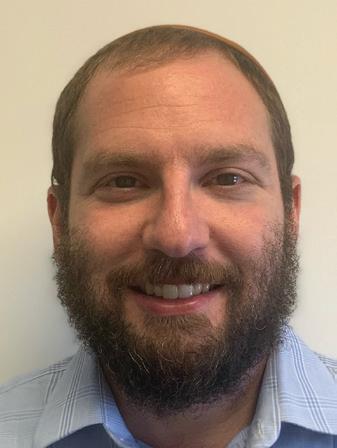
Lately, it feels like the war has come to us — like we’re standing on the front lines.
Just a few weeks ago, Jews were targeted, attacked, even killed, for simply being who we are. Right here, in America. The same America our grandparents ran to for safety. Now, many of us are wondering: how safe is it really?
As I write this, protests and demonstrations are flaring up in California. By the time you read this, the chaos may have reached Chicago or New York. These protests claim to be about politics or immigration, but time and again, they somehow turn into rallies against Jews and Israel. It’s painful. It’s scary. And it’s exhausting. Historically, when hate came at us, we leaned into each other. We found comfort, strength and unity in our community. But
that’s gotten harder to do.
In a world where we’re more “connected” than ever — FaceTime, WhatsApp, social media — so many people feel more alone than ever. Anxiety and depression are skyhigh. Mental health struggles are touching everyone. There’s a quiet kind of pain in the air: loneliness, overwhelm, disconnection. Life feels unstable. Everything moves fast. And so many of us are left wondering: Who am I, really? Where do I belong? Why don’t I feel at home, even in my own skin?
Our people have always turned to the Torah for direction. It’s not just an old scroll or a set of rules, it’s a lifeline. A map that shows us how to live with purpose, how to stay grounded when the world spins, how to find peace inside even when the outside feels threatening.
And right now, the Torah readings we’ve been going through speak directly to this moment.
Just a week after the D.C. shootings, we celebrated Shavuot, the giving of the Torah. A powerful reminder that G-d chose us. And if He chose us, then no protest, chant or headline can take that away. That bond can’t
be broken. That’s who we are.
Right after that, we read about the census in the desert. But it wasn’t just counting heads. The Torah uses a different word: “Nasso Es Rosh” — lift the head. Don’t just count people — lift them. See them. See their soul. Remind each person how much they matter.
It’s a message we need right now. When the world tries to define us, shrink us, erase us — lift your head. You’re not one of many. You’re not a statistic. You are a soul. You are part of something eternal. You are here for a reason.
And then we get to the priestly blessing, those ancient, beautiful words still said in synagogues today: “Yissa Hashem Panav Eilecha” — May G-d lift His face to you. It’s not just us doing the lifting, G-d does it too. He sees your fear, your exhaustion, your pain and He lifts His face to you. He’s not hiding. He’s right here, staying with you. Comforting you. Giving you peace. You are not alone.
And now, this week, we read about Aaron lighting the Menorah. But it’s not just lighting, it’s “Behaaloscha Es Haneiros” — when
you raise up the flames. Aaron didn’t just light a flame and move on. He stayed with it until it burned bright on its own. That’s how you light a soul.
That’s our job too.
First, we’re lifted by the Torah, by Moshe, by the people who inspire us. Then we’re comforted by G-d’s presence. And then we take that light and share it. We become like Aaron. We help someone else find their spark. We lift their head, their heart, their spirit. So if you’re feeling overwhelmed, scared, or unsure — lift your head.
You don’t have to do it alone. You were never meant to.
You have a divine soul. You have the Torah to guide you. You have mentors, friends and people who care. You have G-d right beside you. And you have the power to help someone else rise.
Lift your head. The world needs your light. JN
RABBI
ASHER KNIGHT | JTA
My family has lived in Colorado for generations. I was in touch with my mother and cousins following the firebombing attack on people marching to call attention to the hostages held in Gaza. Some of my cousin’s children attend school in Boulder. This was not far away. In my mind, I can visualize exactly where it happened.
In just the last 50 days: arson at the Pennsylvania governor’s residence; assaults on Jews in the streets; two murdered outside a Jewish event in Washington, D.C. and a firebomb attack in Boulder that injured 15, including a Holocaust survivor.
In several of these cases, attackers shouted, “Free Palestine.” Or they said it when they were caught. Or the graffiti they wrote said it. These are not political statements. These are acts of antisemitic terror.
But something else makes this moment even more painful. The silence.
I serve as the senior rabbi of Temple Beth
El, the largest synagogue in the Carolinas. For years, our clergy and community have shown up. We have marched for racial justice, stood for LGBTQ+ rights, defended reproductive freedom and worked alongside faith communities of every kind and community partners to build a more just Charlotte. We showed up, again and again, because our faith commands us to.
We have not heard from many of the clergy or political leaders who regularly speak out for compassion, equity and peace.
We have not heard from those who have insisted anti-Zionism is not antisemitism.
When Jews are targeted, burned and killed under banners of “Free Palestine,” those voices have now fallen all too silent.
That silence sends a deafening message: that Jewish safety is negotiable. That Jewish lives are less urgent. That the grief of Jews burned alive is not worthy of their compassion or outrage. It leaves us feeling alone. It
of 200 words. They may be edited for space and clarity. Unsigned
forces us to wonder if our pain is visible. If our safety matters.
This is not a time to stay quiet. It is time to be brave. A time to speak with the same moral clarity we have offered to others.
To our friends, our partners in justice, our fellow clergy, our neighbors in the work of healing the world: Where are you?
If you believe in peace, now is the time to say that violence is never acceptable.
If you believe in justice, now is the time to reject hatred in all its forms.
If you believe that all people are created in the image of God (the text you cite is Jewish, by the way), now is the time to say that Jewish people are also created in the image of God.
You can grieve for Gaza and innocent life and still say that burning Jews alive is wrong. You can challenge Israeli policy and still know that Jews everywhere are not responsible for it.
If you care about justice, say something. Stand for what is right. Do not let hate go unanswered.
Why? Because there is no liberation in setting people on fire. There is no justice in chasing Jews from public spaces. There is no righteousness in staying silent. And you should know that hatred that is allowed to grow never stays contained. It always spreads. It always finds new victims and the people peddling in it will always create new grievances to justify more violence.
Say something. Silence is not love. Silence feels like abandonment. And silence will certainly not protect us. We need you to speak up. We have marched beside you. We have prayed with you. We have stood together for justice. Please do not disappear. We are still here. We need to know that you are too. JN
The views and opinions expressed in this article are those of the author and do not necessarily reflect the views of JTA or its parent company, 70 Faces Media.
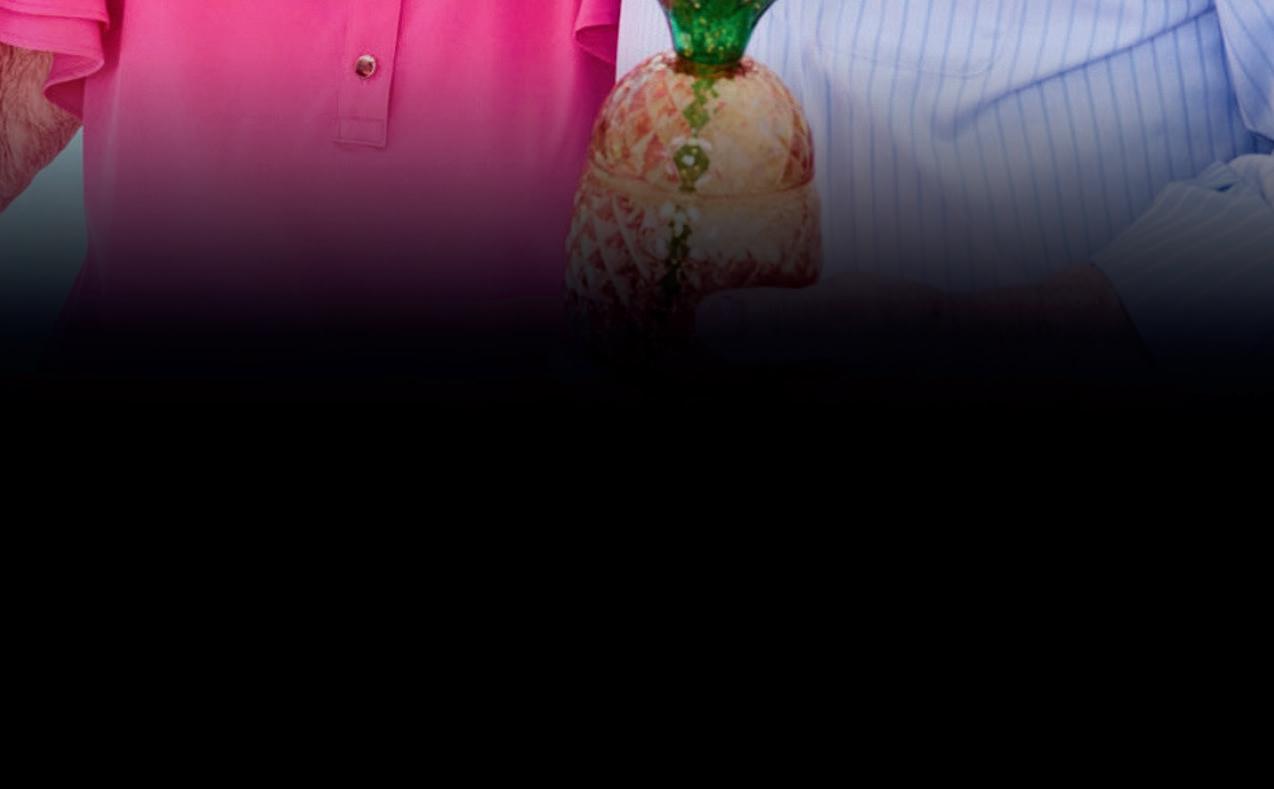
SHANNON LEVITT | STAFF WRITER
Jeff Lewis, 71, had about 100 boxes of books with him when he moved to the Valley from California more than a decade ago. Surprisingly, those books became his first link to Hospice of the Valley (HOV), an organization that would become very important to him through the years.
A friend suggested he donate the books to HOV. Lewis was happy to see them benefit an organization he considered a very good cause. He had some prior experience with a hospice in Palm Springs when his father was terminally ill.
“The concept of hospice has been part of my life for a while, and they were always angels from heaven,” Lewis told Jewish News.
Thus, when he decided to retire from his photography business but wanted to stay busy, his friend again nudged him toward HOV and its Shabbat Blessings volunteer program.
“It combined my love of my religion and my desire to repay hospice care,” he said.

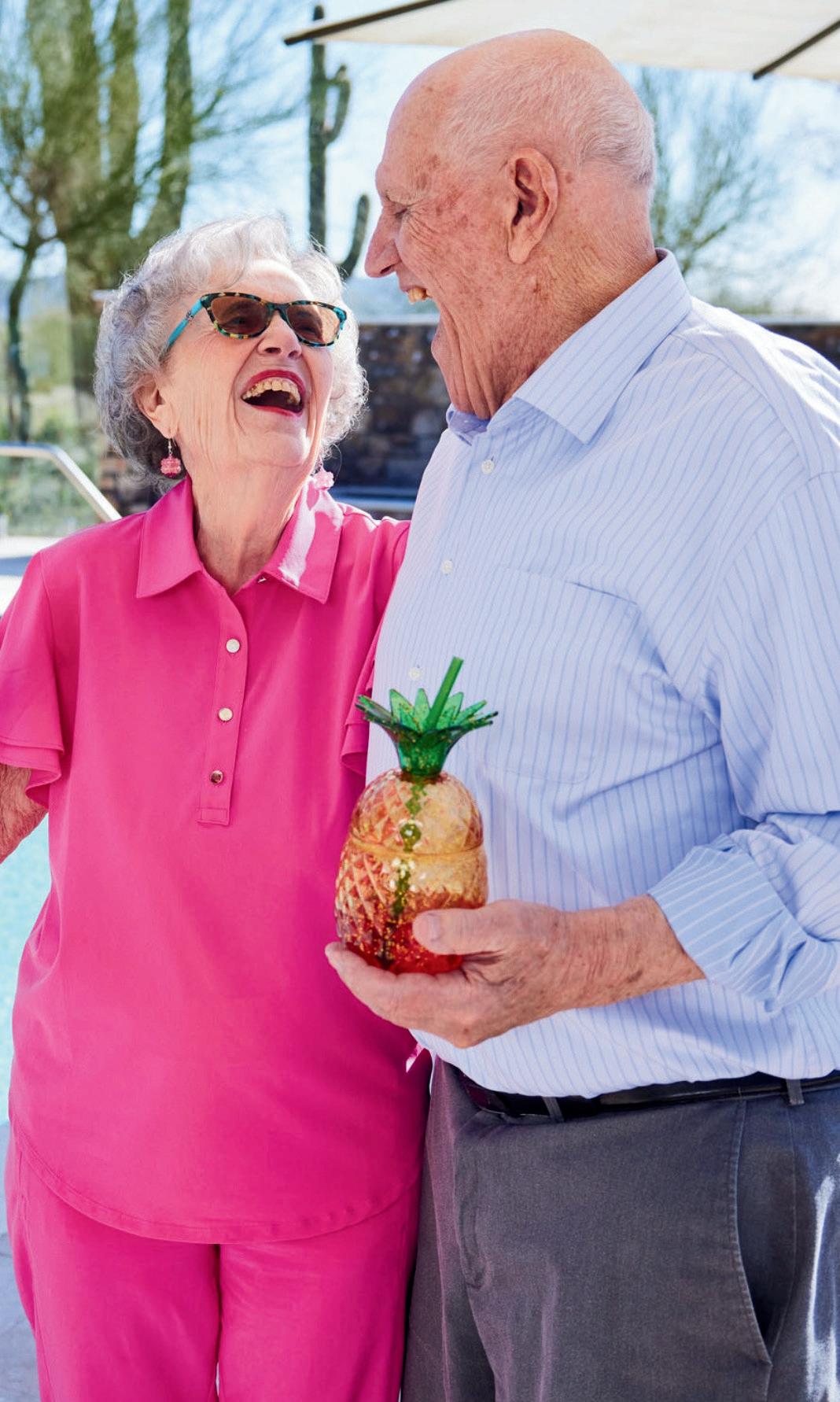
As a Shabbat Blessings volunteer, Lewis, a member of Temple Solel in Paradise Valley, offers hospice patients a small Shabbat service, including lighting Shabbat candles, saying the Hamotzi and Kiddush blessings and offering small prayers.
He trained for a month before going out on his own, and soon he was giving the service a personal touch by adding prayers he liked and asking people what they would like to hear. He loves the voice of Todd Herzog, Solel’s cantorial soloist, and recorded his songs to play during the service.
Often, the people he meets aren’t able to communicate. Lewis remembered a woman who asked him to offer a service for her father who was noncommunicative. She told Lewis her father hadn’t spoken all day and that he wasn’t religious. She had requested the service because of her own belief.
Once Lewis started the blessing in Hebrew, however, the father suddenly started saying “Oy, oy, oy,” and Lewis and the daughter just looked at each other and started laughing.
“Sometimes the patients even call me rabbi. I say, ‘Oh, no I’m not a rabbi. I was kicked out of Sunday school more than anyone you ever knew,’” Lewis laughed. What Lewis couldn’t have guessed when he started volunteering is how he would come to appreciate these blessings from a
very different point of view.
In the summer of 2017, Lewis was diagnosed with cancer. He endured nine weeks of radiation, throughout most of which he continued performing his Shabbat blessings.
“It was a different mindset during that time,” he said. His prayers had always been heartfelt, but doing it while undergoing treatment himself, he realized how lucky he was to be able to continue.
“I wasn’t just saying the words. I was praying with these people and for these people, but it wasn’t a stretch to realize this could be me. In a way, I was praying for myself,” he said.
During the nine weeks of his treatment he recoiled at the idea of being pitied. He decided that every day of that treatment he would do a good deed. Sometimes it was something as simple as bringing in a neighbor’s garbage can from the curb. Once he stopped when he saw a fender bender and helped a woman involved find her phone. He also brought donuts to the radiation clinic, “because who doesn’t appreciate a good donut?”
That last mitzvah soon turned into something bigger when discovered that some of the patients who sat alongside him in the clinic ate the donuts more hungrily than they might have otherwise. A nurse told him some people had to choose between food and medicine.
He was surprised but asked if someone with that dire choice was there that day. He offered to buy that person’s groceries for the next three weeks. A couple weeks later, the clinic asked him if he could help someone else out. After that, he started buying $75 grocery gift cards to give away.
“Giving people money for food is good because when you’re in cancer treatment you have very little control over things. But eating is something you usually can control. To help someone buy the food they want seemed like a good thing,” he said.
When he finished his treatment he wanted to donate money to an organization that provided a similar service but he couldn’t find anything. So he started his own: The Froth and Bubble Foundation for Food Assistance.
He took the name from a line of poetry he liked, one he’d heard long ago at a Princess Diana breast cancer awareness fundraiser.
Adam Lindsay Gordon’s poem “Ye
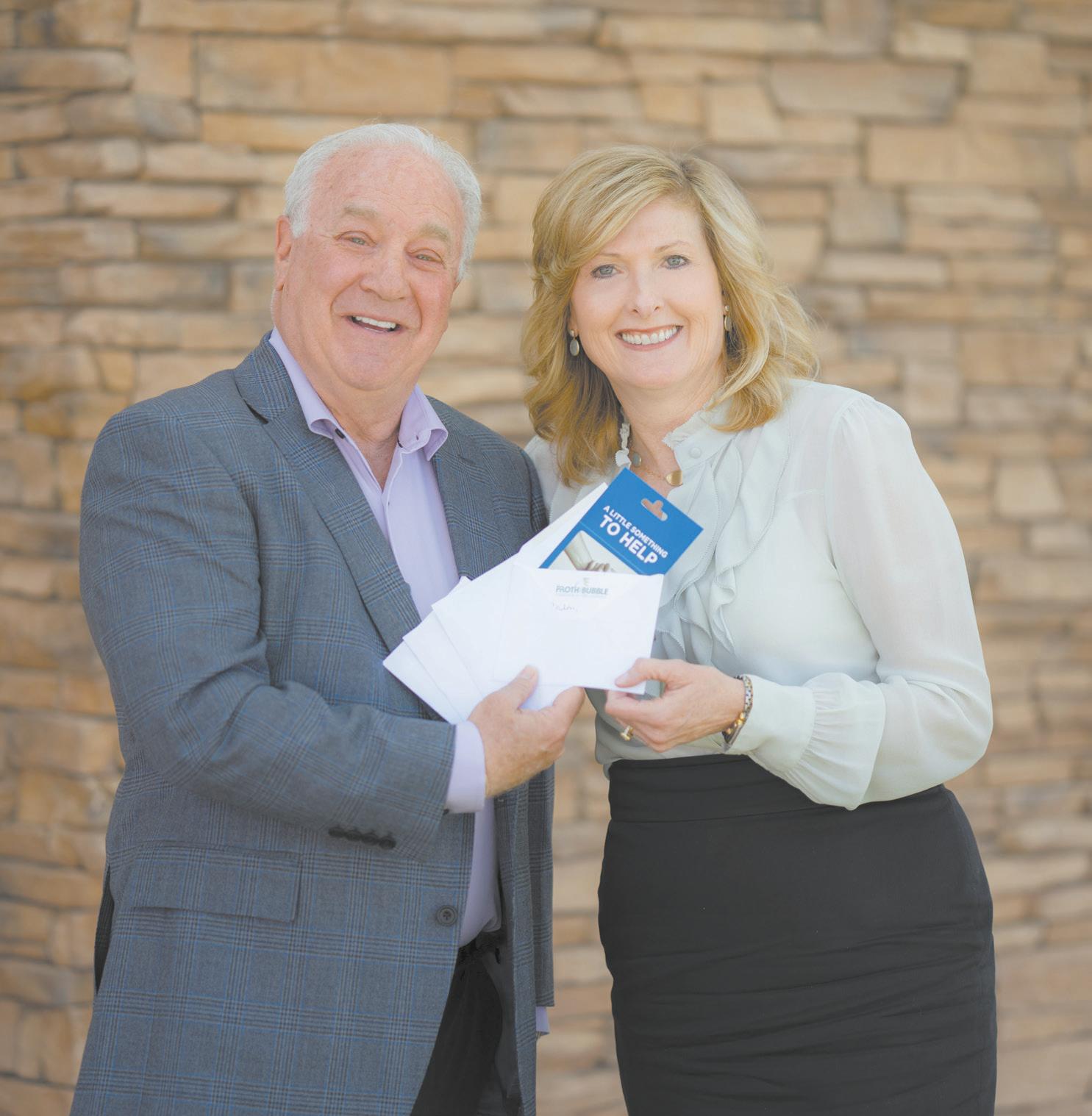
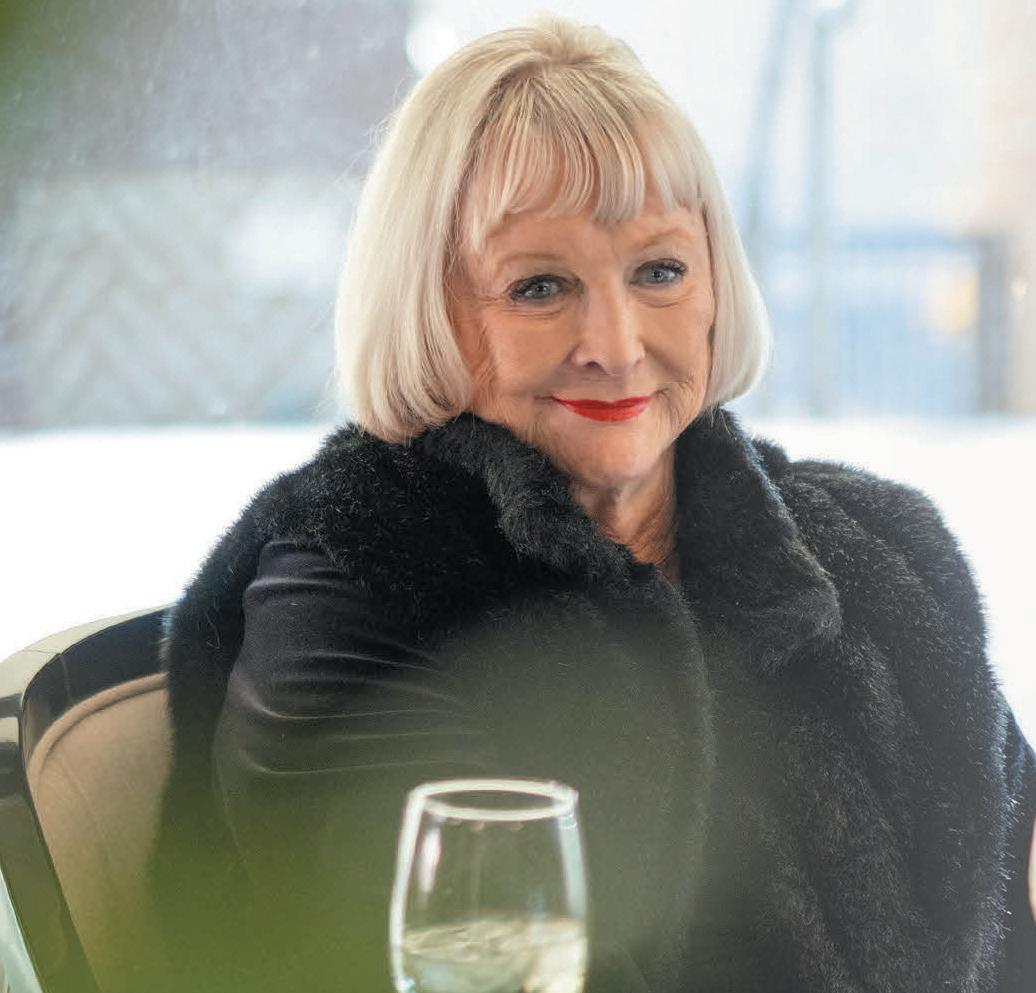
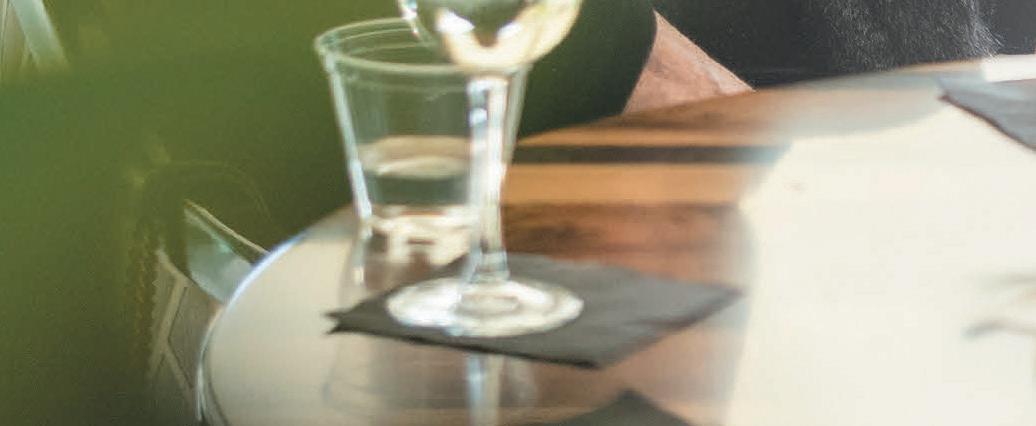

“THE CONCEPT OF HOSPICE HAS BEEN PART OF MY LIFE FOR A WHILE, AND THEY WERE ALWAYS ANGELS FROM HEAVEN.”
JEFF LEWIS
Wearie Wayfarer,” ends with lines that matched his mission: “Life is mostly froth and bubble,/Two things stand like stone,/ Kindness in another’s trouble,/Courage in your own.”
He pays for his foundation’s overhead costs, which are minimal. Several social workers have volunteered to help him vet needs-based applicants, and any money he raises goes straight into buying grocery gift cards.
“A doctor asked me once how I raise money. I told her I begged for money from wealthy doctors. She wrote me a check for $1,000,” he said.
He started this work seven years ago. In March, he handed out his 10,000th grocery gift card. More than 2,000 of the cards he’s donated have been to HOV patients.
“We’re just so grateful to Jeff,” HOV Executive Director Debbie Shumway said in a press release. “These gift cards help families bridge the gap when they need food and are juggling bills and feeling stressed. He is a servant leader who quietly gives back and makes a huge difference, one person at a time.”
“It’s so rewarding to be there for people who want it,” Lewis said.
Offering only their first names, several HOV patients confirmed the difference the cards had made during their treatment.
“There were times when these cards were the only way I could buy groceries,” said Cathy, who lives alone and is being treated for mouth cancer.
Jan, a woman battling lung cancer again after five years of remission, uses the cards for staples, and even occasionally, some ice cream. Her husband said the cards have lifted a big burden from his shoulders.
“The struggles of the people I deal with are enormous, and it may not come out the way they want,” Lewis said.
After beating back prostate cancer, Lewis was later diagnosed with bladder cancer. But he said he’s lucky. Both are cancers that allowed him a good chance for recovery. Feeling blessed himself helps him in his mission to pay it forward.
“Say a small prayer for me and a bigger one for those who are more in need.” JN
To learn more, visit frothandbubblefoundation.org.

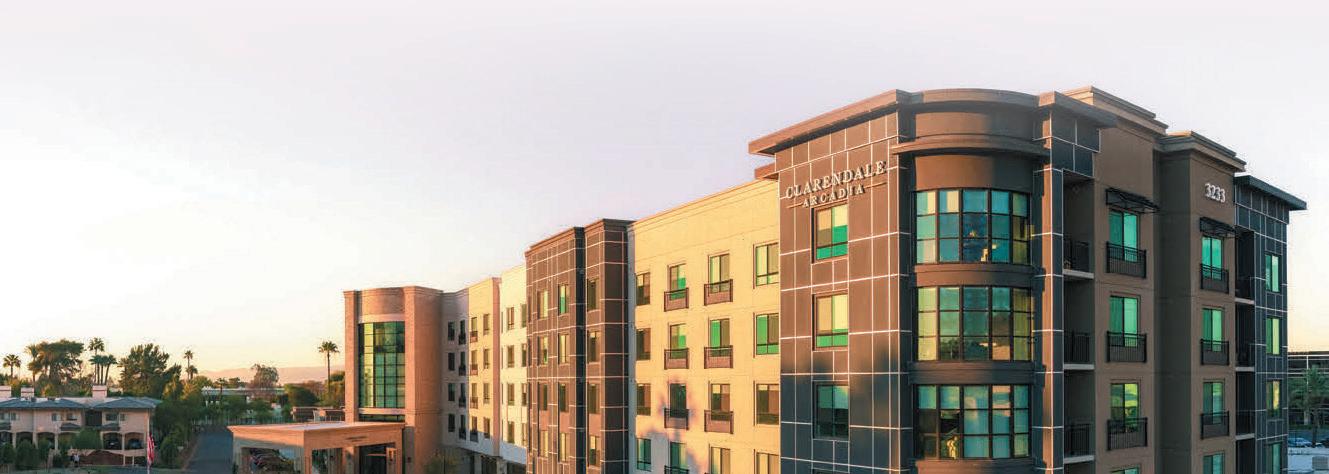
We understand that the cost of senior living may not always be clear – but we’re here to change that.
We understand that the cost of senior living may not always be clear – but we’re here to change that.
We understand that the cost of senior living may not always be clear – but we’re here to change that.
We understand that the cost of senior living may not always be clear – but we’re here to change that.
At Clarendale Arcadia, we believe in complete transparency –so you’ll always know exactly what you pay for.
At Clarendale Arcadia, we believe in complete transparency –so you’ll always know exactly what you pay for.
At Clarendale Arcadia, we believe in complete transparency –so you’ll always know exactly what you pay for.
At Clarendale Arcadia, we believe in complete transparency –so you’ll always know exactly what you pay for.
No hidden fees. No unexpected costs. Just straightforward pricing that makes it easier for you and your family to Redefine Ready and make the most informed decisions about the future.
No hidden fees. No unexpected costs. Just straightforward pricing that makes it easier for you and your family to Redefine Ready and make the most informed decisions about the future. Call 480-608-9102, scan the QR code, or visit ClarendaleArcadia.com/Pricing to learn more.
No hidden fees. No unexpected costs. Just straightforward pricing that makes it easier for you and your family to Redefine Ready and make the most informed decisions about the future.
No hidden fees. No unexpected costs. Just straightforward pricing that makes it easier for you and your family to Redefine Ready and make the most informed decisions about the future. Call
Call 480-608-9102, scan the QR code, or visit ClarendaleArcadia.com/Pricing to learn more.
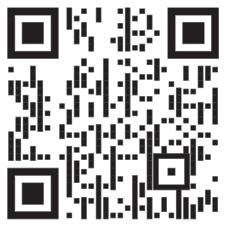
INDEPENDENT LIVING
3233 East Camelback Road | Phoenix, AZ 85018
OFFICE 480-608-9102
3233 East Camelback Road | Phoenix, AZ 85018
LIFE@ClarendaleArcadia.com
3233 East Camelback Road | Phoenix, AZ 85018 OFFICE 480-608-9102 LIFE@ClarendaleArcadia.com
OFFICE 480-608-9102 LIFE@ClarendaleArcadia.com
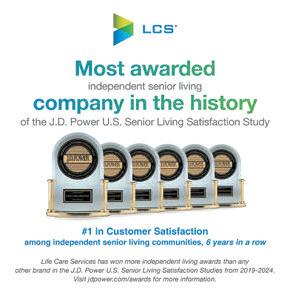
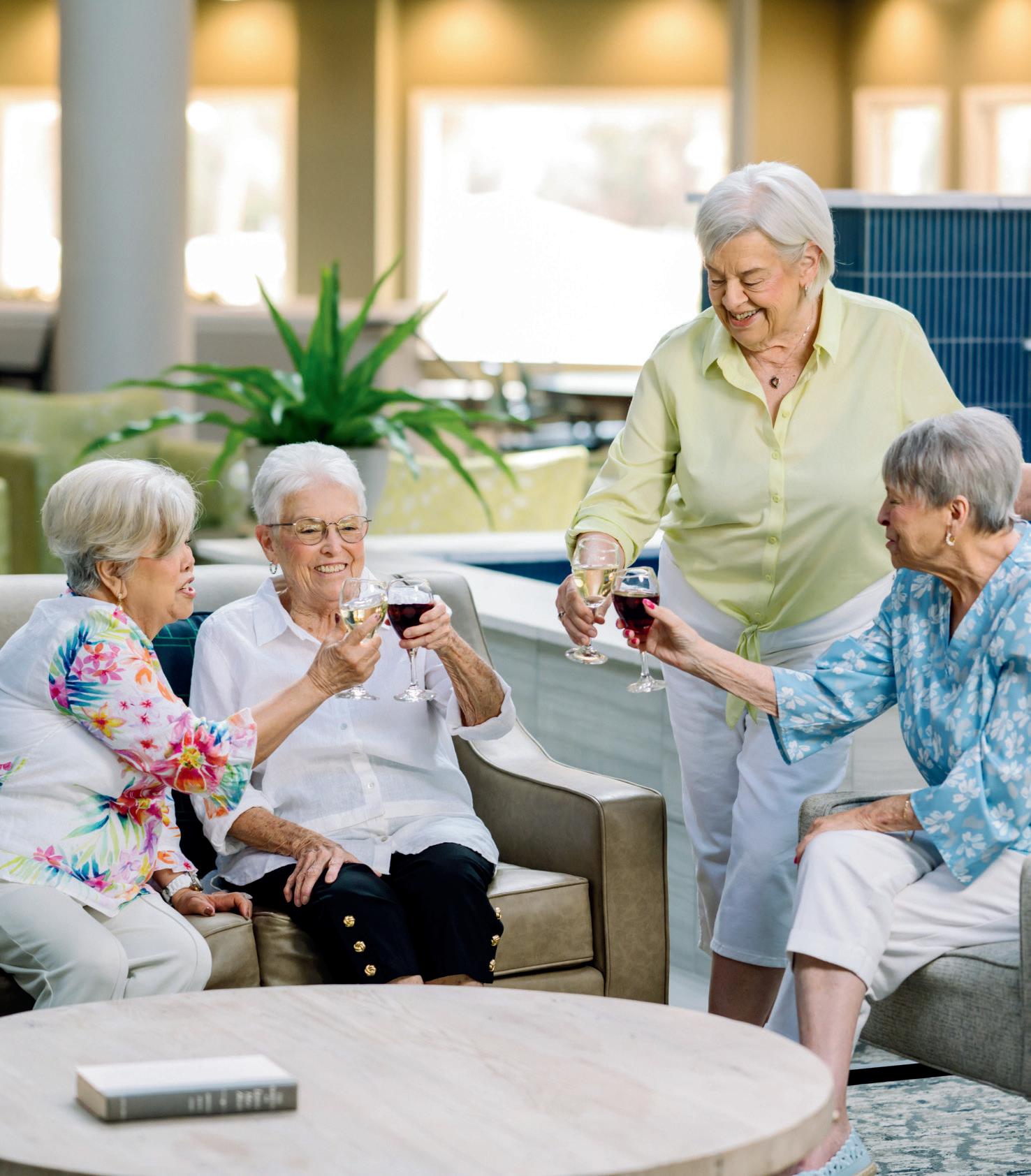
If you’ve ever watched a loved one slowly lose their memory, their sense of self, their ability to recognize family or hold a conversation — you know how devastating Alzheimer’s disease can be. It’s something we neurologists have been fighting for decades. And while we’ve made progress, one of the biggest hurdles has always been early detection.
But that may finally be changing.
I’m excited — and honestly, a little emotional — to share that recent research is confirming something many of us in the field have hoped for: A simple blood test can now help predict who is at higher risk for developing Alzheimer’s disease, years before any symptoms like memory loss or confusion begin.


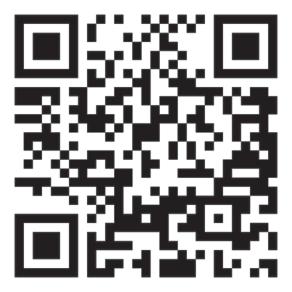
Let me say that again. With just a blood sample, we may soon be able to identify people who are at higher risk to develop Alzheimer’s long before they actually do.
This is a game-changer.
The shift from diagnosis to prediction
For a long time, diagnosing Alzheimer’s meant waiting until symptoms appeared, and by then, significant damage to the brain had often already occurred. Imaging tests like MRIs or PET scans helped, but they’re expensive, not always accessible and still couldn’t catch the disease in its earliest stages.
Now, research is showing that specific proteins in the blood — especially one called p-Tau217 — can act as biomarkers for Alzheimer’s. In layman’s terms, these are tiny chemical clues that tell us what’s going on inside the brain, even if everything seems fine on the outside.
Think of it like a smoke detector for your brain. You may not see flames yet, but the alarm lets us know something is starting to smolder.
In some cases, these blood tests have been able to detect signs of Alzheimer’s up to 15 to 20 years before someone would normally be diagnosed. That’s time we can use to act.
What this means for you — and for the future
I know what you might be thinking: “If I don’t have symptoms, why would
I want to know?”
That’s a fair question. And the answer depends on each individual’s values, goals and circumstances.
But here’s what I tell my patients: Information is power.

Knowing you’re at risk doesn’t mean you’re doomed — it means you have a head start. It means we can talk about proven ways to reduce your risk: staying physically active, keeping your heart healthy, eating a brain-friendly diet, staying socially engaged and keeping your mind sharp.
And maybe even more exciting, it means you could be eligible for clinical trials or future treatments aimed at stopping Alzheimer’s before it starts. I often compare it to heart disease. If your cholesterol is high, we don’t wait for a heart attack to act, we start you on a plan to protect your heart. This is that same philosophy, applied to the brain.
Who should consider getting tested?
These blood tests aren’t yet part of routine checkups, but they’re quickly moving in that direction. Right now, they’re most commonly used in research settings, but more clinics — like ours at HonorHealth Neurology — are starting to offer them, especially for people with a family history of Alzheimer’s or those concerned about cognitive health. If you have a parent or sibling who had Alzheimer’s, or if you’ve noticed subtle changes in your memory, I’d encourage you to have a conversation with your doctor. You may not need a test right away, but just starting the dialogue is a great first step.
We’re entering a new era of Alzheimer’s care, one focused on prevention, early detection and hope.
A message of encouragement
This isn’t about fear. It’s about possibility.
I became a neurologist because I SEE BLOOD TEST, PAGE 16
BOB ROTH | COLUMNIST
In just a couple of years, I’ll be turning 65, a milestone that, for many, has long signaled retirement, retreat and a quiet fade into the background. But not for me.
That number doesn’t mark the end of the road. It’s not a signal to slow down or step aside. If anything, it’s a reminder of how much more there is to do and how much I still want to contribute. I’m not winding down. I’m ramping up.
I have more to build, give, learn and lead. And I know I’m not alone. A new generation of older Americans is redefining what it means to age not with resignation, but with purpose.
Everywhere I look, especially in the world of aging services, I see people who are reimagining what it means to grow older. They are working, leading, mentoring, volunteering, creating and engaging.
And yet, the outdated concept of “retirement” still persists.
The origin of retirement traces back to the 1880s, when German Chancellor Otto von Bismarck introduced it as a social policy. At the time, life expectancy hovered around 47 years. Retirement age
was set at 65 not because people were expected to live long past it, but because most never made it that far. The goal was not to free up decades of meaningful living, it was to make room for younger workers by phasing out the oldest.
That was then. But today, life looks dramatically different. The average life expectancy in the United States is now closer to 78, and for many of us, especially those with access to good healthcare and supportive communities, living well into our 80s and 90s is becoming the norm.
In Arizona, the older adult population is growing faster than nearly anywhere else in the country. We are living longer, yes, but we’re also living better.
And that changes everything.
Yet our language hasn’t caught up.
“Retirement,” from the French retirer, literally means “to withdraw.” And for far too long, that’s exactly how we have treated it: as a withdrawal from purpose, from productivity, from participation. A polite step back. A final act.
But I don’t believe in full stops, especially not when people are still brimming with ideas, wisdom, creativity
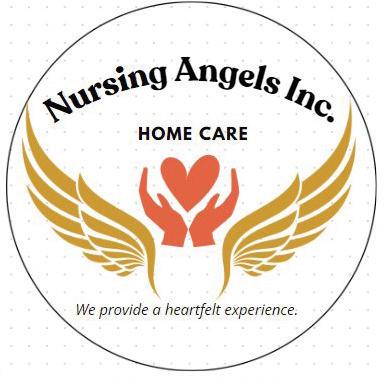
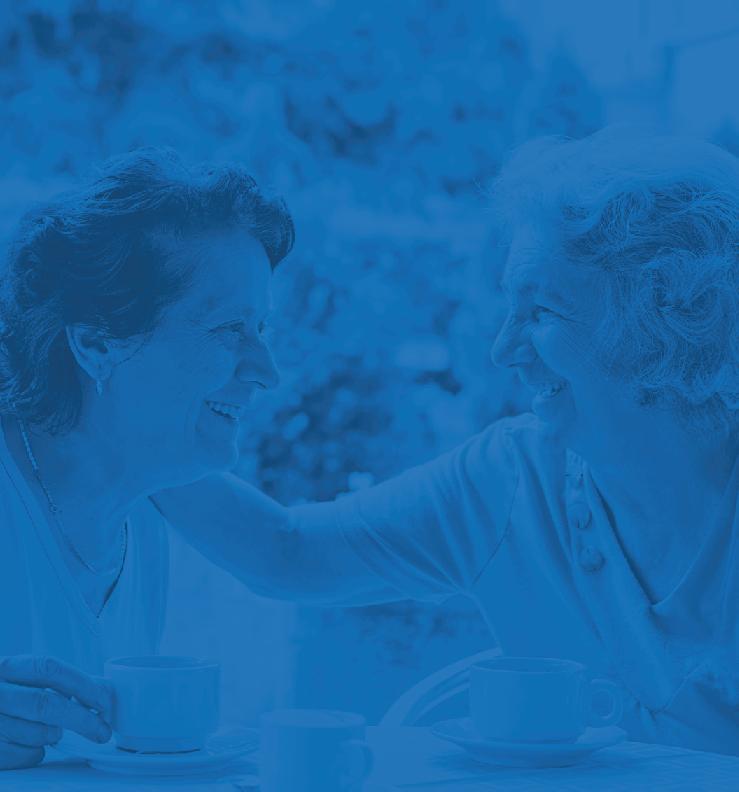
and capacity to serve. We need a new narrative for what comes next.
David Letterman, now 78, called retirement a “myth,” saying that the human spirit simply isn’t built to stop contributing. Former Secretary of Labor Robert Reich wrote that he “loathed” the idea of retiring. Even Diana Taurasi, one of the WNBA’s greatest athletes, admitted with visible emotion that the word “retirement” felt sad and hollow, like something was being taken away, not opened up.
That’s because it’s not about working or not working. It’s about purpose. It’s about agency. It’s about waking up with a reason to get out of bed and a sense that your presence in the world still matters.
At Cypress HomeCare Solutions, I have had the privilege of seeing what this looks like in real life. Our caregivers range in age and background, but many have come to this work later in life, as a second act, or even a third. They’re not doing it because they have to. They’re doing it because they want to help others, to connect, to make a difference. And that,
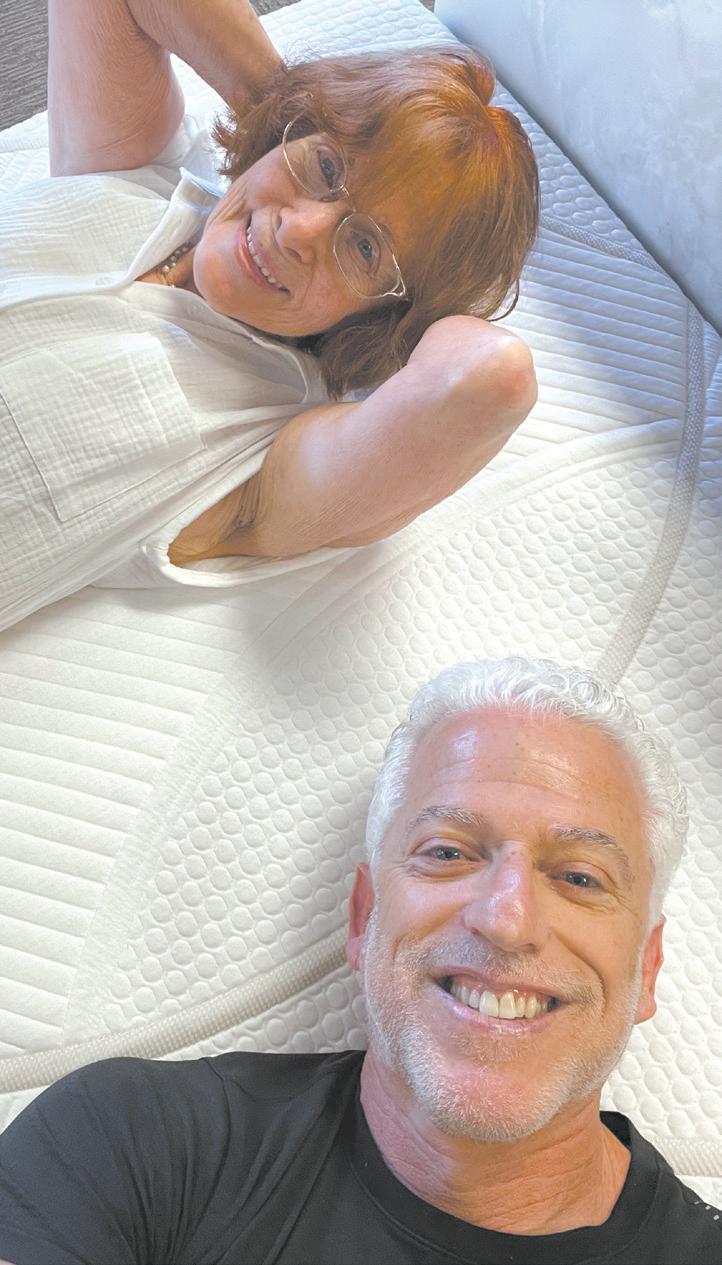
Embrace
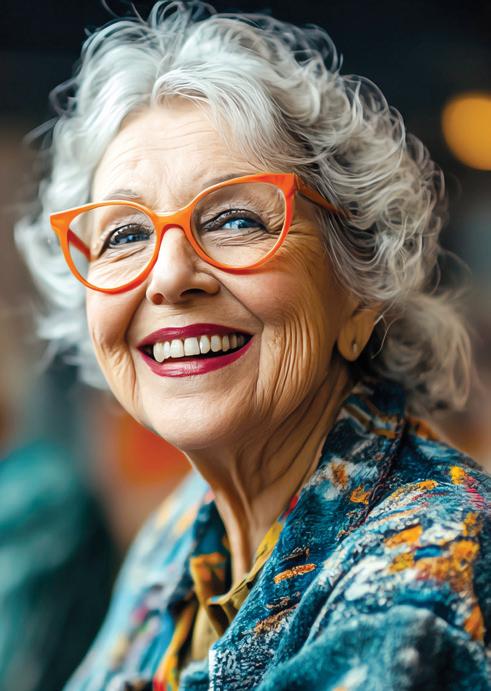
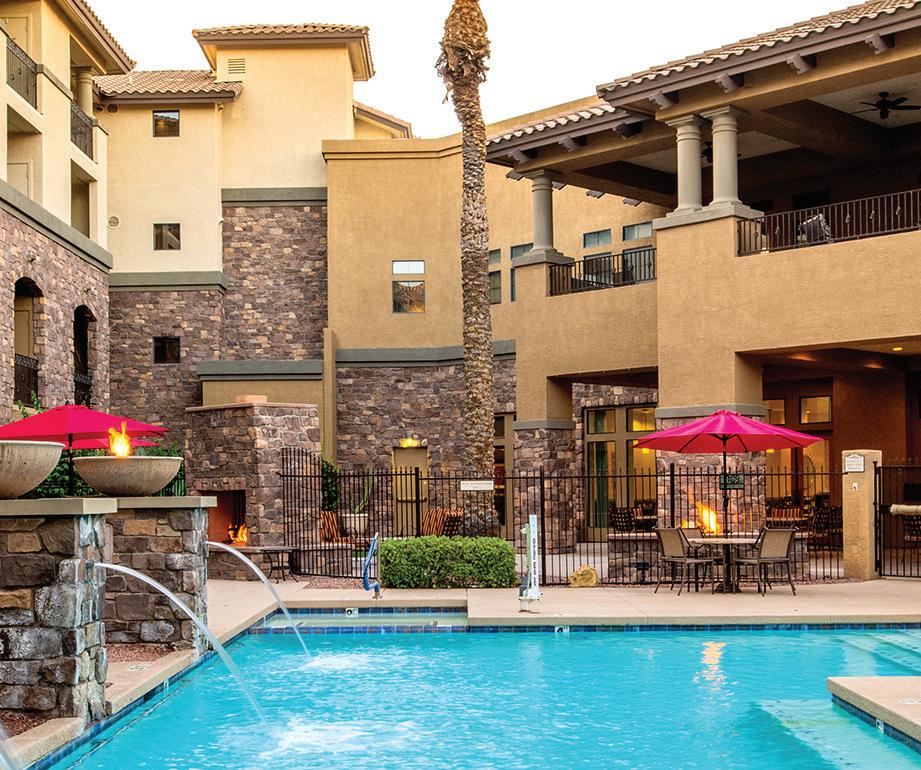





to me, is the very definition of aging with grace and purpose.
We have also seen clients in their 80s and 90s who teach us something every day, not just about resilience, but about relevance. They offer insights, share stories, pass down wisdom and remind us that contribution doesn’t come with an expiration date.
Stories of reinvention. Stories of resilience. Stories of people who, like me, are approaching 65 and thinking not about slowing down, but about what’s next. This is a call to action, for communities, employers, policymakers and families. Let’s embrace the possibilities of longer lives. Let’s support flexible work, lifelong learning, intergenerational mentorship and the power of purpose at every age.
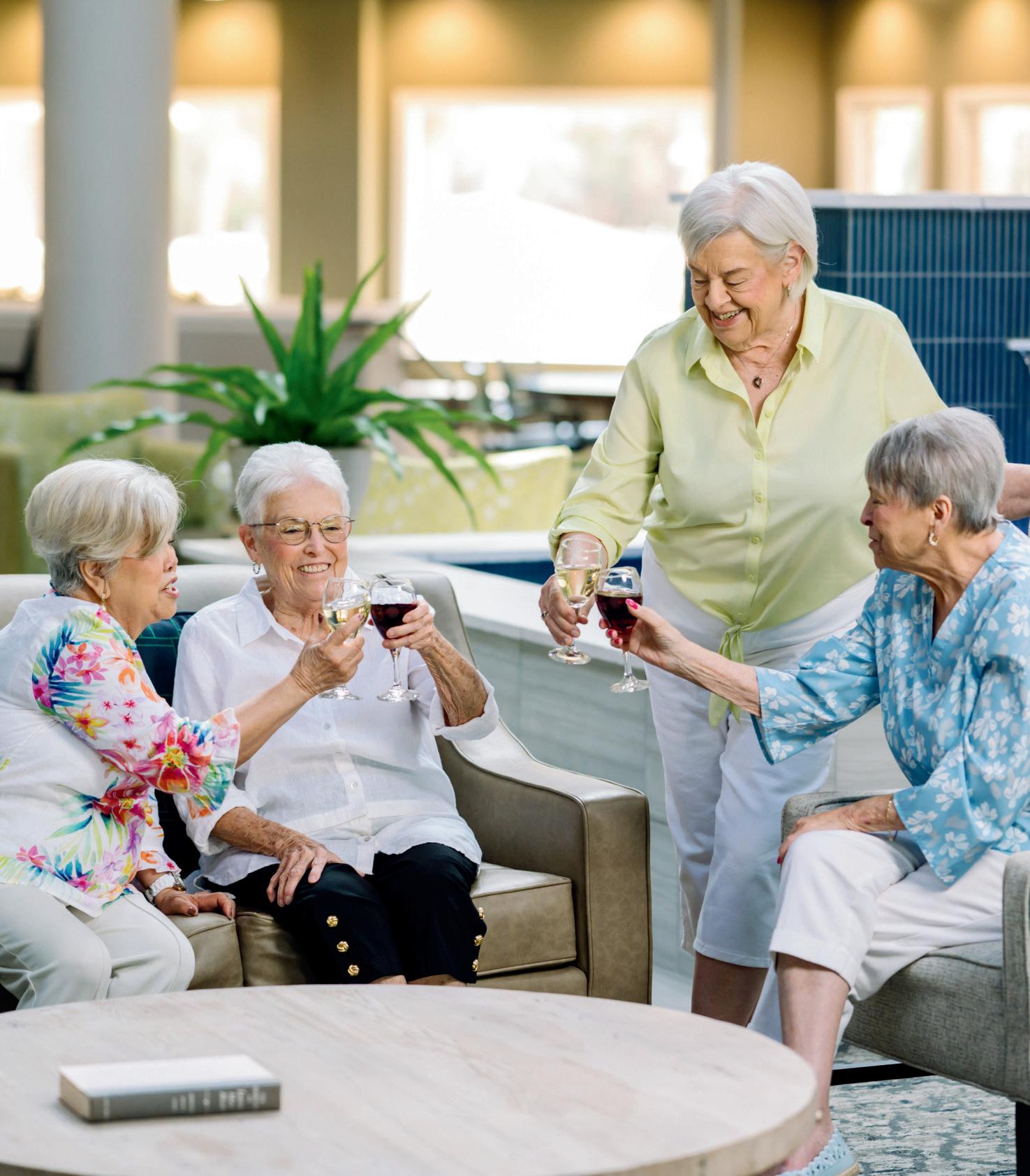
And still, for too many Americans, retirement comes with a loss of identity. As Richard Eisenberg, a journalist covering the world of “unretirement,” explains, many people struggle to define themselves when they stop working. “So many of us are tied up with work as our identity,” he said. “It’s as if you’re no longer a productive member of society.”
That perception has consequences. Some people shrink back. Others isolate. And still others are pushed out of the workforce, not because they want to stop working, but because of ageism, inflexible work environments or health limitations.
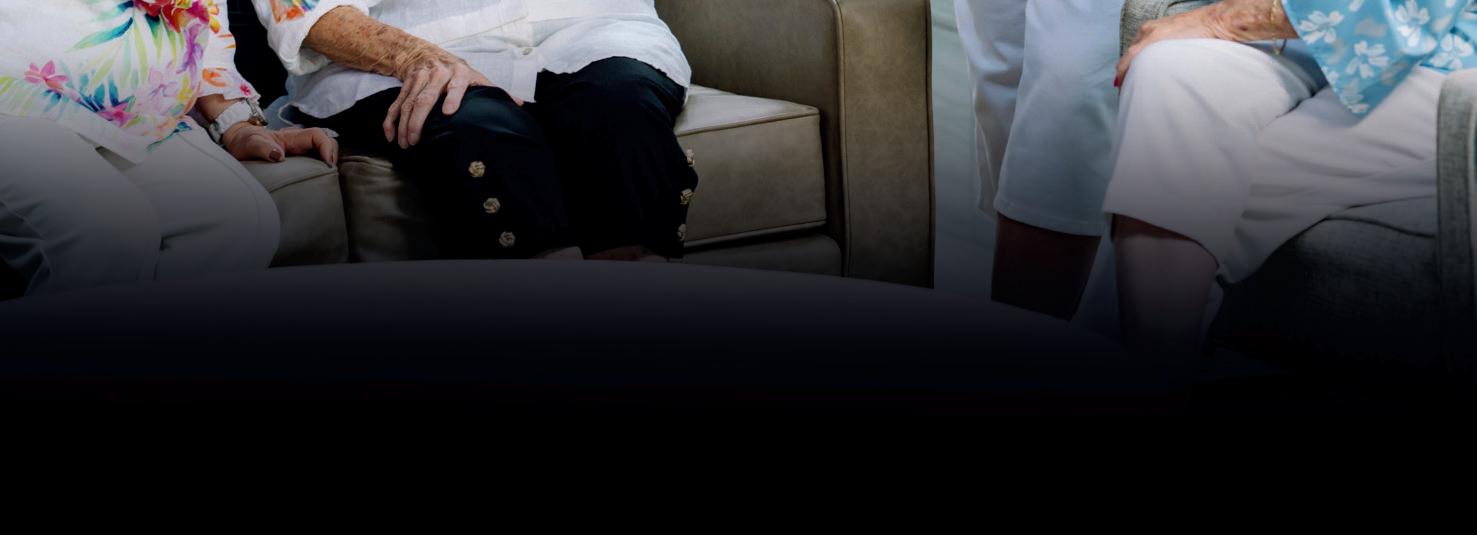

Carole Easton, CEO of the Centre for Ageing Better, warns that increasing the retirement age without improving workplace flexibility or access to opportunity will only widen the gap between those who can work longer and those who can’t. She’s right. Equity matters. Dignity matters. We must create a culture that supports all older adults, whether they want to continue working or not.
But for those who do have the desire and the ability to continue contributing, we need to stop seeing that as the exception and start treating it as the norm.
That starts with changing our language. Even AARP recognized this shift back in 1999 when it removed “retired” from its name. Today, 44 percent of AARP members are still working. New terms like “unretirement,” “rewirement,” and “encore careers” are gaining traction, but none have quite caught on as a replacement for the old “R word.”
So maybe it’s time we stop searching for the perfect new word and just start telling better stories.
BLOOD TEST
CONTINUED FROM PAGE 14
wanted
—
Of course, no test is perfect. And no test can predict the future with 100% accuracy. But the science is strong and getting stronger. The more we learn, the better we can care for our patients, not just when they’re sick, but when they’re still well.
To me, that’s the ultimate goal.
So, if you’re worried about your memory, or if you just want to be
The truth is, we are entering an era where it will be common, realistic, even expected, for people in their 70s, 80s and 90s to want more from life. More purpose. More joy. More connection. Many of them will choose to work part-time, perhaps two or three days a week, not because they have to, but because they want to remain engaged. And when they do, they’ll likely become some of the most trusted and dependable members of your team, a win-win for the retireeturned-employee and the employer alike.
So, if you’re 65 or older, hear this clearly: it’s your turn. It’s your turn to create, feel, take control, win, love and enjoy everything this life still has to offer. Because we’re not done yet.
I don’t have to look far to see what it means to age with purpose. My mother-inlaw, Wilma “Willie” Lorber, turns 87 this month, and she’s still working full time. Not because she has to, but because she loves what she does. If you scroll through the Google reviews for the store where she works, you’ll find her name mentioned again and again, each note a small tribute to her kindness, professionalism and infectious energy.
Willie doesn’t just show up, she lights up the room. She thrives. And watching her move through the world with the drive, grace and stamina of someone decades younger has been nothing short of inspiring. Her story isn’t an outlier. It’s a powerful, living rebuttal to the outdated belief that growing older means growing less. Willie reminds us all that age isn’t a ceiling, it’s a stage. And what you choose to do on it is entirely up to you. JN
Bob Roth is the managing partner of Cypress HomeCare Solutions.
proactive about brain health, don’t wait. Talk to your doctor. Ask questions. Take action. The earlier we start, the more we can do together.
Let’s shift the conversation from “How do we treat Alzheimer’s?” to “How do we stop it before it starts?”
Because now — for the first time in a long time — we just might have an answer. JN
Todd Levine, MD, is the director of Neuroscience Research at the HonorHealth Research Institute. Dr. Levine has held leadership roles such as chairman of the Neuromuscular Division of the American Academy of Neurology and has contributed to numerous peer-reviewed publications and clinical trials.

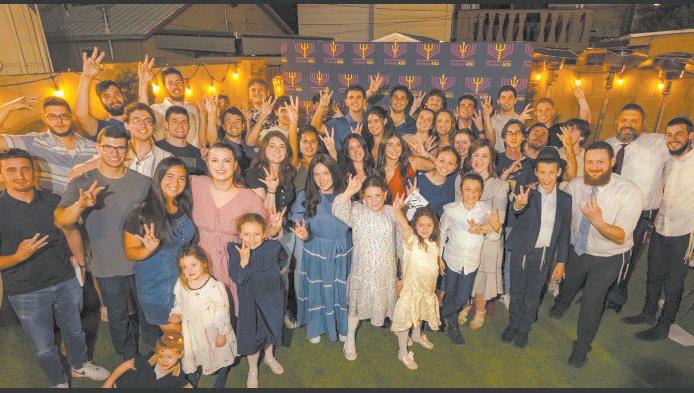
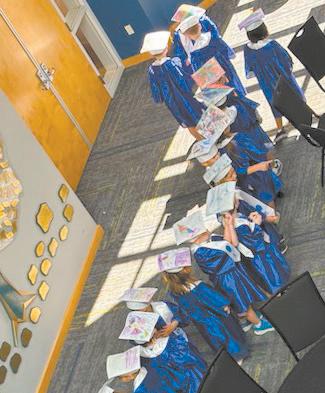
BBQ
On Wednesday, April 9, the Valley of the Sun JCC Intermediate Pickleball League finished its nine-week tournament. For one day every week, during the course of the competition, participants played six games. Harriet Colan, longest tenured full-time employee at the Valley of the Sun Jewish Community Center, and pictured in a lavendar t-shirt, shows off her second-place medal.
Temple Beth Shalom of the West Valley member Nancy Urbach was the keynote speaker at the temple’s interfaith Holocaust Remembrance Day program. She shared how her family members helped save about 200 relatives and friends from Nazi Germany in the 1930s.
Scottsdale’s Congregation Beth Tefillah members mixed it up with various costumes at the Purim Party in March.
Todd Herzog, right, and Colton Rahav, left, took part in Congregation Beth Tefillah’s Passover concert and BBQ last month in Scottsdale.
Tikkun Olam Together, a program of the Center for Jewish Philanthropy of Greater Phoenix, worked to support the Bureau of Jewish Education of Greater Phoenix’s Passover Food Drive. Mothers and daughters packaged holiday candles and greeting cards, and added them to the Passover food packages that were delivered a few days before the start of the holiday.
Leo, one of the newest members of Temple Chai, wears a hard hat during the Phoenix synagogue’s groundbreaking at its new home.
from left are Ana Spence, Linda Lober, Michael and Nancy Mendelsohn, Andrea Silvey, Peter and Irene Baron, Isy and Benita Sonabend, David Termine and Dave Shooten.
OF
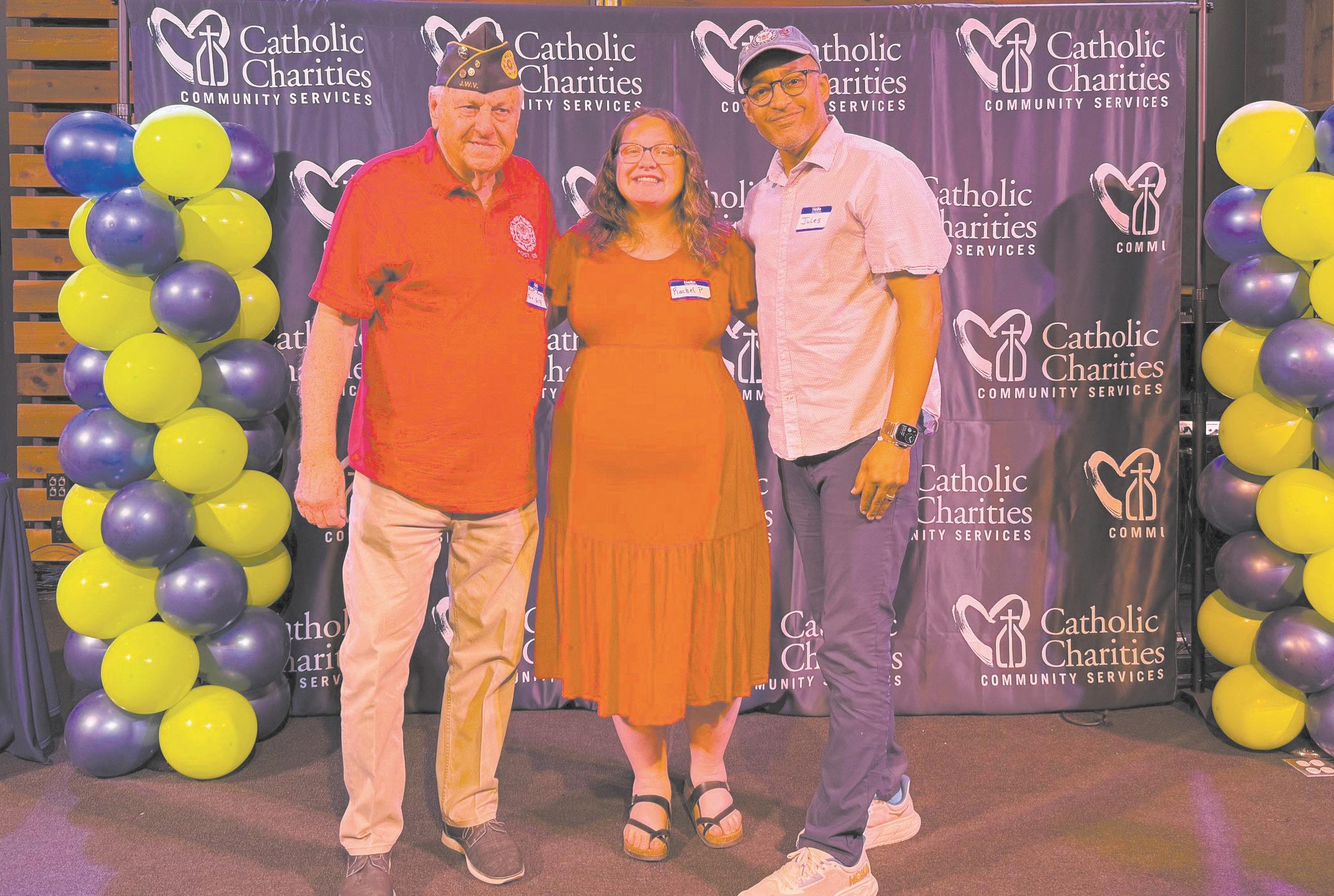
was honored for its dedication to veterans. Pictured with Catholic Charities Community Engagement Coordinator Rachel Masch-Perez, are JWV representatives Elliott Reiss, left, and Commander Jules Wyatt.
On Thursday, April 24, several Jewish organizations recruited volunteers for “Reading of Names” on
Leah Berenson of the Center for Jewish Philanthropy of Greater Phoenix is pictured here reading the names of people murdered during the Holocaust.
On Sunday, March 23, Temple Solel hosted its annual Women’s Passover Seder. It was an evening of spirituality, song and shared tradition led by Solel Rabbi Debbie Stiel and including the vocals of Tamara Lieberman. This special Seder weaves together the rich tapestry of Jewish heritage with the voices and experiences of women.
Congregation Or Tzion Rabbi Andy Green was recently announced as the new president of the Greater Phoenix Board of Rabbis Executive Committee. The new committee is pictured from left: Rabbi Mindie Snyder, co-treasurer; Beth El Congregation Rabbi Nitzan Stein-Kokin, vice president; Green; Congregation Beth Israel Rabbi Sara Mason-Barkin, secretary; and Temple Kol Ami Rabbi Jeremy Schneider, immediate past president. Not pictured is Rabbi Mark Bisman, co-treasurer.
OF
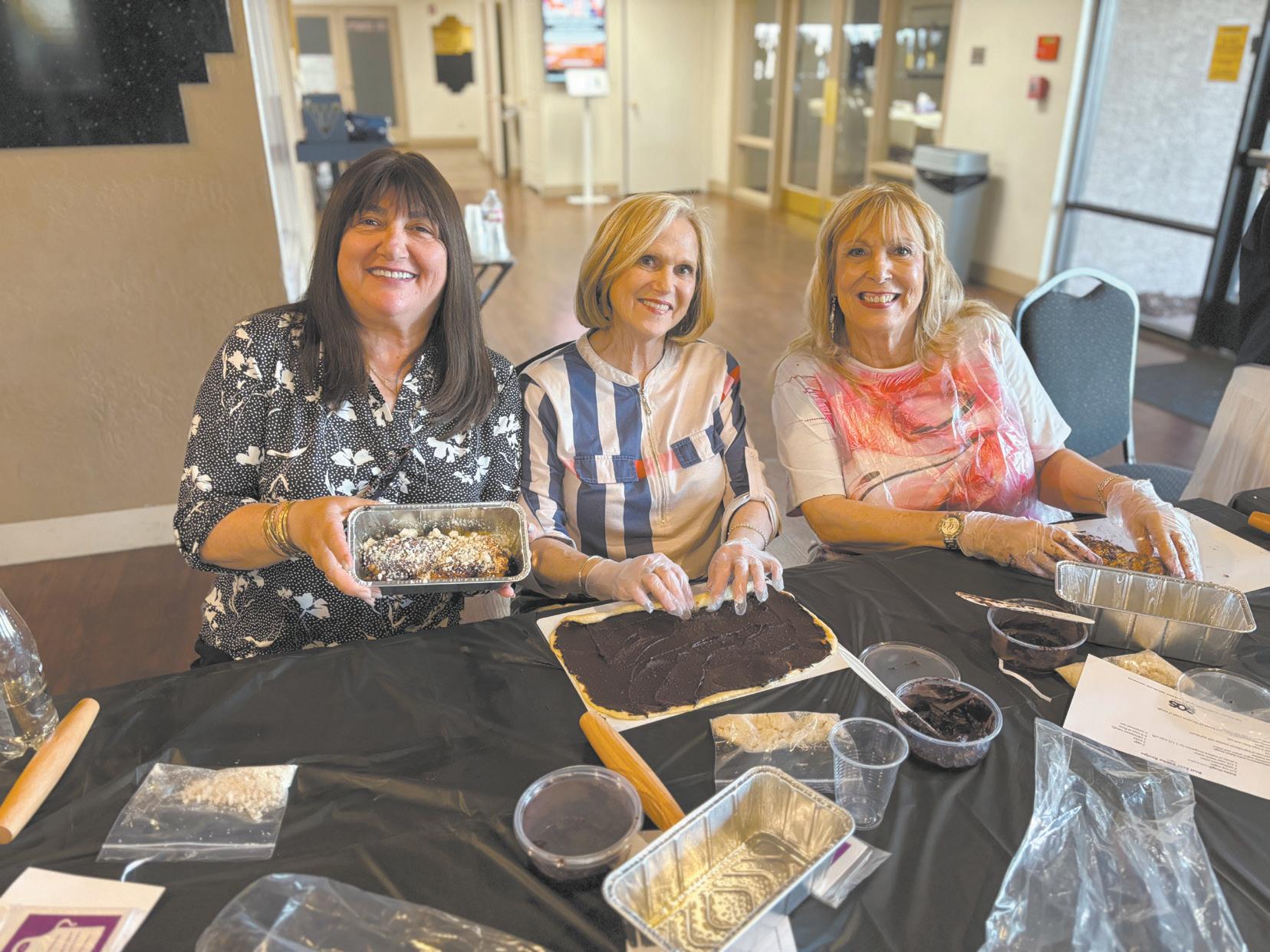
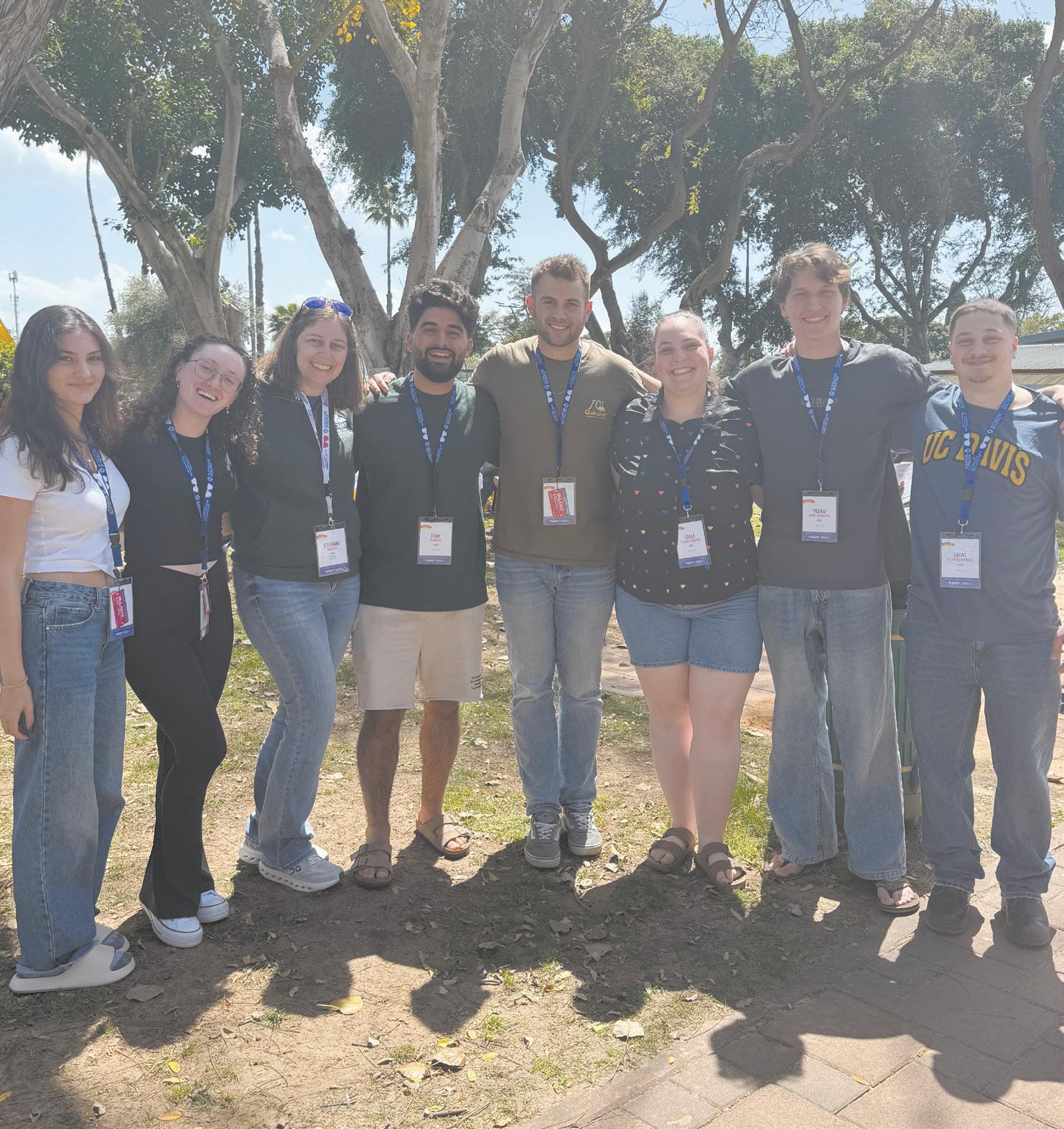
Sonabend, left, and Pinki
bread for Smile on
Every summer, the Jewish Agency for Israel sends thousands of shlichim (Israeli representatives) to Jewish summer camps across North America. This summer, Camp Daisy and Harry Stein welcomes seven of them, pictured here with Stefani Rozen, director at Camp Stein,
demonstrate how to prepare black bean chocolate cake and
Jerry Lewkowitz, right, presented Alma Hernandez with the Lewkowitz Family Rising Leader Award at the Anti-Defamation League Desert’s Conference on Antisemitism in Tempe on Friday, April 11.
Congregation Beth Tefillah’s youth directors, Rabbi Yisrael and Eden Kumer, led a leadership training for teens while hiking in Phoenix. The goal was to
“In the Kitchen with Benita” series on Feb. 25.
On Tuesday, April 29, Congregation Beth Tefillah (CBT) member Eleanor Gross L.C.S.W. led CBT’s Babyccino group in a mindful parenting session about releasing self-imposed limitations while
inner peace and personal growth.
This COMMUNITY page features photos of community members around the Valley and the world. Submit photos and details each
of around the Valley and the world. Submit photos
This COMMUNITY page features photos of community members around the Valley and the world. Submit photos and details each week to editor@jewishaz.com by 10 a.m. Monday.
This COMMUNITY page features photos of community members around the Valley and the world. Submit photos and
by 10 a.m. Monday.
WEDNESDAY, JUNE 18
7:15-9:15 p.m. Temple Beth Sholom of the East Valley, 3400 N. Dobson Road, Chandler. Join TBS-EV for an Israeli dance class. This class is open to all experience levels. $8 if signed up in advance, $10 at the door, free for TBS-EV members. For more information, visit tbsev.org/calendar.
THROUGH THURSDAY, AUG. 28
Summer Camp for Adults: Times and addresses vary; some classes available online. Join Brandeis National Committee Phoenix Chapter for activities and classes throughout the summer. For more information, visit brandeisphoenix.org.
MONDAY, JUNE 16
JFCS Creative Aging Golden Airways Performance: 1:30 p.m. Congregation Beth Israel, 10460 N. 56th St., Scottsdale. Join CBI and Jewish Family & Children’s Service Center for Senior Enrichment for a performance of radio broadcast dramas. RSVP to seniorcenter@jfcsaz.org.
WEDNESDAY, JUNE 18
Hat Bar: Top Off Your Style + Fun: 10 a.m.12 p.m. Valley of the Sun Jewish Community Center, 12701 N. Scottsdale Road, Scottsdale. Join the VOSJ and Cogir Senior Living for an interactive activity designed for adults 55+. Choose from a wide selection of hats, customize your look and make new friends. Cost: $18. For more information, visit valleyofthesunj.org/calendar.
The Colours of the Parchment: An Exploration of Modern Midrash Produced by Jewish Artists: 10-11 a.m. Online. Join Valley Beit Midrash for a virtual presentation by Rabbi Dvir Cahana, who launched The Amen Institute, an international space where professional artists and rabbis unite to inspire each other in the creation of Torah art. For more information, visit valleybeitmidrash.org/ event/the-colours-of-the-parchment-anexploration-of-modern-midrash-producedby-jewish-artists.
THURSDAY, JUNE 19
The Social Aspect of Reincarnation: 10-11 a.m. Online. Join Valley Beit Midrash for a virtual presentation by Dr. Jonnie Schnytzer, who holds a Ph.D. in Jewish Philosophy, focusing on medieval kabbalah. For more information, visit valleybeitmidrash.org/ event/the-social-aspect-of-reincarnation.
FRIDAY, JUNE 20
Cultivating Local Jewish Allyship: 1-2 p.m. Online via Zoom. Join Arizona Jews for Justice for a presentation by Michael Soto, president of Equality Arizona, the state’s oldest and leading LGBTQ+ civil rights organization. For more information, visit jewishphoenix.com/go/cultivating-local-jewish-allyship.
SUNDAY, JUNE 22
Café Europa: 1-4:30 p.m. Beth El Congregation, 1118 W. Glendale Ave., Phoenix. Join the Phoenix Holocaust Association for an afternoon of socializing for Holocaust survivors, their families and friends. RSVP by Wednesday, June 18. For more information, visit phxha.com/connect.
THURSDAY, JUNE 26
NowGen Night Out: 6-8 p.m. Location provided upon registration. Join NowGen, a program of the Center for Jewish Philanthropy of Greater Phoenix, for a night of games, food, drinks and community with other adults in their 20’s through 40’s. $30 includes two hours of interactive activities. For more information, visit phoenixcjp. regfox.com/nowgennight.
SUNDAY, JUNE 29
Summer Splash: Independence Day: 11 a.m.-1 p.m. Valley of the Sun Jewish Community Center, 12701 N. Scottsdale Road, Scottsdale. Join the VOSJ for fun poolside. For more information, visit valleyofthesunj. org/calendar.
FRIDAY, JULY 11
Born in a Concentration Camp: 10 a.m. Online via Zoom. Join the Arizona Jewish Historical Society for a discussion by Holocaust survivor, Hana Berger Moran. Cost: Free. For more information, visit azjhs.org/ event/hana.
SATURDAY, JULY 12
Mah Jongg Party: 10 a.m. check in, 11 a.m. play begins. Via Linda Senior Center, 10440 E. Via Linda, Scottsdale. Join Via Linda Senior Center for an afternoon of game playing, lunch, prizes and raffles. For more information, contact Susan Weiner at 623521-5702 or susanweiner.travel@gmail.com.
Dementia Experience and Education: 12-3 p.m. Dementia Care and Education Campus, 3811 N. 44th St., Phoenix. Participate in this interactive presentation featuring an eightminute experience that presses participants to perform everyday tasks as if they were living with cognitive impairment. This simulation will be followed by a general review of the most common types of dementia and how progressive brain changes impact thinking, functioning and behaviors. For more information, contact 602-767-8300 or events@dementiacampus.org.
SUNDAYS
Chassidus Class: 9 a.m. Online. Learn about the Chasidic movement with Rabbi Yossi Friedman. Use this link: ChabadAZ.com/ LiveClass. Cost: Free. For more information, visit chabadaz.com.
Jewish War Veterans Post 210: 10 a.m. Online. Any active duty service member or veteran is welcome to join monthly meetings, every third Sunday. Cost: Free. For more information, email Michael Chambers at c365michael@yahoo.com.
Anxiety in the Modern World: 6 p.m. Online. Learn the secrets of the Torah for living stress-free in the current environment with
Rabbi Boruch of Chabad of Oro Valley. Cost: Free. Use this link: zoom.us/j/736434666. For more information, visit chabadaz.com.
MONDAYS
Pomegranate Guild of Judaic Needlework, Desert Cactus Chapter: 10 a.m. The Oasis at Sagewood, 4555 E. Mayo Blvd., Phoenix. The guild meets the third Monday of the month, adjusted when necessary to accommodate Jewish holidays. For more information, visit pomegranateguild.org.
Mahjong: 1:30-3:30 p.m. East Valley Jewish Community Center, 908 N. Alma School Road, Chandler. Come play mahjong each week. For all levels. Cost: Free; registration required at evjcc.org/mahjong.
Ethics of Our Fathers: 7 p.m. Online. Learn with Rabbi Zalman Levertov. Use this link: bit.ly/2Y0wdgv. Cost: Free. For more information, visit chabadaz.com.
Quotable Quotes by our Sages: 7 p.m. Online. Learn with Rabbi Shlomy Levertov. Use this link: JewishParadiseValley.com/ class. Cost: Free. For more information, visit chabadaz.com.
Partners in Torah: 7:30 p.m. Online. Join a growing group of inspired learners with Project Inspire. Cost: Free. Use this link: us04web. zoom.us/j/3940479736#success, password is 613. For more information, email Robin Meyerson at robin@projectinspireaz.com.
Learning to Trust in God: 7:30 p.m. Online. Learn with Rabbi Yossi Friedman. Use this link: ChabadAZ.com/LiveClass. Cost: Free. For more information, visit chabadaz.com.
Torah & Tea: 7:30 p.m. Online. Learn with Rabbi Yossie Shemtov. Cost: Free. For more information, visit Facebook.com/ ChabadTucson.
Single Parent Zoom: 8 p.m. First and third Monday of every month. Join The Bureau of Jewish Education’s Family University single parents’ group for those looking to form friendships and build their support system with like-minded people. For more information or to register, visit bjephoenix.org/ family-university.
TUESDAYS
Let’s Knit: 1:30 p.m. Ina Levine Jewish Community Campus, 12701 N. Scottsdale Road, Scottsdale. Share the pleasure of knitting, crocheting, etc. outside the social hall in the campus. Can’t knit? They will teach you! Every level welcome. Cost: Free. For more information, visit vosjcc.org.
Maintaining an Upbeat Attitude: 7 p.m. Online. A class exclusively for people in their 20s and 30s, learn how Jewish Mysticism can help with your attitude with Rabbi Shlomy Levertov. Use this link: JewishParadiseValley.
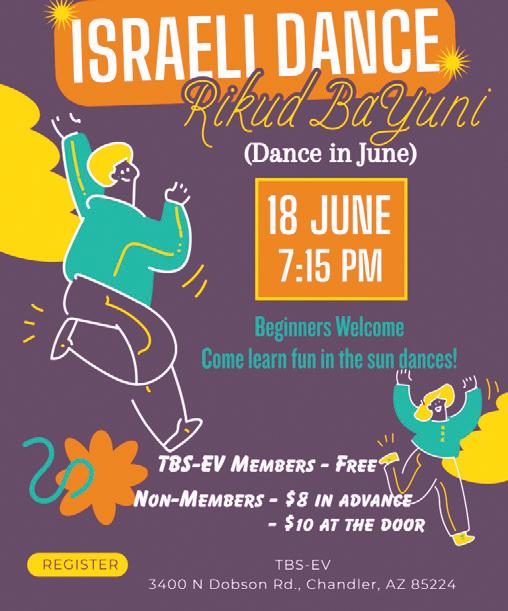
com/YJPclass. Cost: Free. For more information, visit chabadaz.com.
Torah Studies: 7:30 p.m. Online. Learn with Rabbi Mendy Levertov. Use this link: ourjewishcenter.com/virtual. Cost: Free. For more information, visit chabadaz.com.
WEDNESDAYS
Torah Study with Temple Beth Shalom of the West Valley: 11 a.m.-12:30 p.m. Online. Weekly study group explores that week’s portion and studies different perspectives and debates the merits of various arguments. Intended for adults, Torah study is open to students of all levels. For more information, contact the TBS office at 623-977-3240.
Happiness Hour: 11:30 a.m. Online. Class taught by Rabbi Pinchas Allouche that delves into texts and references culled from our traditions to address a relevant topic. For more information or to join, visit cbtvirtualworld.com.
Lunch & Learn: 12 p.m. Online. Grab some food and learn with Rabbi Yehuda Ceitlin. Use this link: Facebook.com/ChabadTucson. Cost: Free. For more information, visit chabadtucson.com.
Torah Study with Chabad: 12 p.m. Online. Take a weekly journey of Torah with Rabbi Yossi Levertov. Cost: Free. For more information, visit chabadaz.com.
The Thirteen Petalled Rose: 1 p.m. Online. Kabbalah class that studies “The Thirteen Petalled Rose” by Rabbi Adin Even-Israel Steinsaltz, focusing on the many concepts of Kaballah and Jewish Mysticism and applying them to everyday life. For more information or to join, visit cbtvirtualworld.com.
Grief Support Group: 5-6 p.m. Online via Zoom. Therapist Susan Charney MCW, LCSW, leads a grief support group every first and third Wednesday of the month virtually for individuals experiencing the loss of an adult child or sibling. In lieu of any fees for these sessions, donations to Temple Solel are appreciated. For more information, contact susancharneycounseling@gmail.com.
History of the Jews: 7 p.m. Online. Learn the Jewish journey from Genesis to Moshiach with Rabbi Ephraim Zimmerman. Use this link: zoom.us/j/736434666. Cost: Free. For more information, visit chabadaz.com.
JACS: 7:30-8:30 p.m. Online. Zoom support group for Jewish alcoholics, addicts and their friends and family on the first and third Wednesdays of the month. Cost: Free. For more information, email jacsarizona@gmail. com or call 602-692-1004.
THURSDAYS
Ladies Torah & Tea: 10:30 a.m. Online. Learn about the women of the Torah with Mrs.
Leah Levertov. Use this link: ourjewishcenter. com/virtual. Cost: Free. For more information, visit chabadaz.com.
Talmud - Maakos: 11 a.m. Online. Learn with Rabbi Shlomy Levertov. Cost: Free. Use this link: JewishParadiseValley.com/YJPclass. For more information, visit chabadaz.com.
The Science of Everything: 11 a.m. Online. Explore the most fundamental work of Chassidut: the Tanya, with Rabbi Boruch. Use this link: zoom.us/j/736434666. Cost: Free. For more information, visit chabadaz.com.
Mindfulness Gatherings: 12 p.m. Online. Hosted by Hospice of the Valley via Zoom. Cost: Free. To join by phone, dial 1-253-2158782, meeting ID 486 920 2119#, to get the Zoom link or for further questions contact Gill Hamilton at ghamilton@hov.org or 602-748-3692.
Weekly Mahjong: 1-3 p.m. Temple Solel, 6805 E. McDonald Drive, Paradise Valley. Join Temple Solel each Thursday afternoon for mahjong. Lessons available for beginners. Cost: Free. RSVP via email to dottiebefore@gmail.com so they know how many tables to set up.
Torah Portion Class: 7 p.m. Online or in person. Chabad Lubavitch of Fountain Hills, 16830 E. Avenue of the Fountains, Fountain Hills. Join Rabbi Mendy Lipskier for a discussion of the weekly parshah and gain new insights to the Torah. For more information, visit jewishfountainhills.com.
Teen Discussions: 7-8:30 p.m. Online. Learn with Rabbi Tzvi Rimler. Use this link: cteen. clickmeeting.com/east-valley. Cost: Free. For more information, visit chabadaz.com.
SATURDAYS
Saturday Mindfulness Gatherings: 9:30 a.m. Online. Hosted by Hospice of the Valley. To join by phone, dial 1-253-215-8782, meeting ID 486 920 2119#. To get the Zoom link or for more information, contact Gill Hamilton at ghamilton@hov.org or 602-748-3692.
Book Discussion: 1:30-2:30 p.m. Online. Join Or Adam Congregation for Humanistic Judaism on the third Saturday of every month for a book discussion. For more information and to register, contact oradaminfo@gmail.com.
Shabbat
FRIDAYS
Shabbat in the Park: 10-11 a.m. Cactus Park, 7202 E. Cactus Road, Scottsdale. Join the Bureau of Jewish Education of Greater Phoenix monthly for music, parachute play,
crafts and a family Shabbat experience. For more information, visit bjephoenix.org.
Welcome Shabbat: 11-11:30 a.m. Online. Celebrate Shabbat with the JFCS Virtual Center for Senior Enrichment. Each week a different guest host will lead the program with song and celebration. Cost: Free. For more information, visit jfcsaz.org/cse.
Shabbat at Beth El: 5:45 p.m. on Zoom; 9:30 a.m. at Beth El Phoenix, 1118 W. Glendale. Ave., Phoenix or livestreaming at tinyurl. com/bec-livestream. Celebrate Shabbat with songs, blessings and teachings with Rabbi Stein-Kokin and Cantor Sarah Bollt. For more information or to join, visit bethelphoenix.com.
Erev Shabbat Service: 5:30 p.m. Online. Rabbi Alicia Magal will lead a service livestreamed for members of the Jewish Community of Sedona and the Verde Valley. Cost: Free. For more information and to obtain the Zoom link, visit jcsvv.org/contact.
Shabbat Service: 5:30-6:30 p.m.; Oneg at 5 p.m. Temple B’rith Shalom, 2077 Brohner Way, Prescott. Join Temple B’rith Shalom for a musical and spiritual Shabbat service. For more information, visit brithshalom-az.org.
Shabbat Services: 5:30 p.m. nosh, 6:15 p.m. service; morning service has varying dates and times. Temple Chai, 4645 E. Marilyn Road, Phoenix. For more information, contact Joan Neer at jneer@templechai.com.
Pre-Shabbat Kiddush Club: 6 p.m. Online. Say Kiddush with Rabbi Mendy Levertov. Cost: Free. Use this link: ourjewishcenter. com/virtual. For more information, visit chabadaz.com.
Shabbat Services: 6 p.m; 9:30 a.m. Congregation Or Tzion, 16415 N. 90th St., Scottsdale. Services are also live streamed at otaz. org/livestream. For more information about services, events and membership, visit congregationortzion.org or call 480-342-8858.
First Friday Shabbat Services: 6:15 p.m.; Oneg at 7:15 p.m. Valley Unitarian Universalist, 6400 W. Del Rio St., Chandler. Join Congregation NefeshSoul for Friday night services the first Friday of each month in the sanctuary building of Valley Unitarian Universalist. For more information, contact Jim Hoffman at 480-329-3316.
Shabbat Services: 6:15 p.m; 10 a.m. Congregation Beth Israel, 10460 N. 56th St., Scottsdale. Services held in the Goldsmith Sanctuary. Participants must pre-register by Thursday at 5 p.m. Priority will be given to members first and then guests. If there are more requests than available seats a lottery system will be used. For more information
or to make a reservation, visit cbiaz.org/ shabbat-services.
Kabbalat Shabbat and/or Shabbat morning service: 6:30 p.m.; 10 a.m.; dates vary. Congregation Kehillah, 5858 E. Dynamite Blvd., Cave Creek. Join Rabbi Bonnie Sharfman and cantorial soloists Erica Erman and Scott Leader either in person or via Zoom. For safety reasons, please register ahead of time. For dates, visit congregationkehillah. org/event/. Register by emailing info@congregationkehillah.org.
Shabbat Services: 7 p.m. Temple Beth Shalom of the West Valley, 12202 N. 101st Ave., Sun City. Services are followed by an Oneg. Services are live-streamed on YouTube. For more information and to get the YouTube link, visit tbsaz.org or call 623-977-3240.
Shabbat Services in Sun Lakes: 7-9 p.m. Sun Lakes Chapel, 9240 E. Sun Lakes Blvd. North, Sun Lakes. Sun Lakes Jewish Congregation conducts Reform Shabbat services on the second Friday of each month. New members welcome. For more information, call 480-612-4413 or 480-580-1592.
Shabbat Services with Beth Ami Temple: 7 p.m. Services held at Unitarian Universalist Congregation of Phoenix, 4027 E. Lincoln Dr., Paradise Valley. Join Beth Ami Temple Rabbi Alison Lawton and Cantorial Soloist Michael Robbins as they lead Shabbat services twice a month. For more information, visit bethamitemple.org.
Third Friday Shabbat: 7-9 p.m. Group meets at a North Scottsdale location. The Desert Foothills Jewish Community Association hosts a Shabbat service followed by a program. Contact 602-487-5718 for more information.
MONDAYS
Fitness Xpress Series with Zoe: 11-11:30 a.m. Online. Presented by JFCS Center for Senior Enrichment. Workout features weight and band exercises as well as yoga poses. Exercises will be demonstrated standing, but can also be done sitting in a chair. Cost: Free. For more information, visit jfcsaz.org/cse.
Sip & Schmooze: 11 a.m. milk + honey, 12701 N. Scottsdale Road, Scottsdale. Sip on kosher coffee or tea, enjoy a pastry and schmooze every second Monday of the month. RSVP appreciated to chani@sosaz. org or 602-492-7670. For more information, visit sosaz.org.
Featured Presentation: 12:30 p.m. Online. Join Smile on Seniors Mondays and Wednesdays to learn from a variety of
presenters about topical issues, like Q&As with medical professionals, entertainers and lectures. Cost: Free. For more information, visit sosaz.org/virtual or email Rabbi Levi Levertov at levi@sosaz.org.
TUESDAYS
Movie Discussion Group: 11 a.m. Online. Join Smile on Seniors on the third Tuesday of every month hosted by Issy Lifshitz. Cost: Free. For full details and the movie of the month visit sosaz.org/virtual or email Rabbi Levi Levertov at levi@sosaz.org.
WEDNESDAYS
Fitness Fun with Zoe: 10-10:45 a.m. Online. Presented by JFCS Center for Senior Enrichment. Workout features light chair exercises with optional weights. Cost: Free. For more information, visit jfcsaz.org/cse.
Chair Yoga with Zoe: 11-11:45 a.m. Online. Presented by JFCS Center for Senior Enrichment. 45-minute chair yoga class. No prior yoga experience required. Cost: Free. For more information, visit jfcsaz.org/cse.
THURSDAYS
Memory Cafe: 10-11 a.m. first Thursday; 1-2 p.m. third Thursday. Online. Presented by Jewish Family & Children’s Service. Program for those with changes in their thinking or memory, mild cognitive impairment due to Alzheimer’s disease or a related disorder, along with their care partners. For more information, visit jfcsaz.org/our-services/ older-adult-services/memory-cafe/.
In the Kitchen with Benita: 12:30 p.m. Join Smile on Seniors on the fourth Thursday of every month for some delicious cooking or baking fun! Cost: Free. For full details visit sosaz.org/virtual or email Rabbi Levi Levertov at levi@sosaz.org.
FRIDAYS
Welcome Shabbat: 11-11:30 a.m. Online. Celebrate Shabbat with the JFCS Virtual Center for Senior Enrichment. Each week a different guest host will lead the program with song and celebration. Cost: Free. For more information, visit jfcsaz.org/cse.
Sit or Stand Ballet Class: 12-12:45 p.m. Online. Presented by JFCS Center for Senior Enrichment. Jennifer Cafarella Betts and Friends from Ballet Theatre of Phoenix teach this class. Grab a chair or you can stand next to a chair or counter. Cost: Free. For more information, visit jfcsaz.org/cse.
Musical Friday: 12:30 p.m. Online. Join Smile on Seniors on the first Friday of every month for a musical presentation. Cost: Free. For full details visit sosaz.org/virtual or email Rabbi Levi Levertov at levi@sosaz.org. JN



BAT MITZVAH
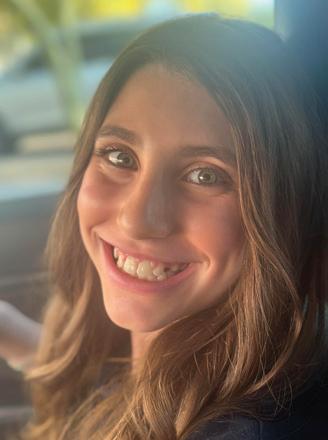
Emmanuelle Love Perlman became a bat mitzvah on May 17, 2025, at Chabad of Fountain Hills. She is the daughter of Bari and David Perlman of Scottsdale.
Emmanuelle’s grandparents are Rickey and Mark Goldin of Boynton Beach Florida; and the late Carolyn and Barry Perlman. For her mitzvah project, Emmanuelle has taken on the mitzvah of lighting Shabbat candles before sunset on Fridays and encouraging other Jewish women and girls to do the same. A student at Great Heart Preparatory Cicero, Emmanuelle enjoys volleyball, show choir and theater. She also loves riding and anything to do with horses. JN

